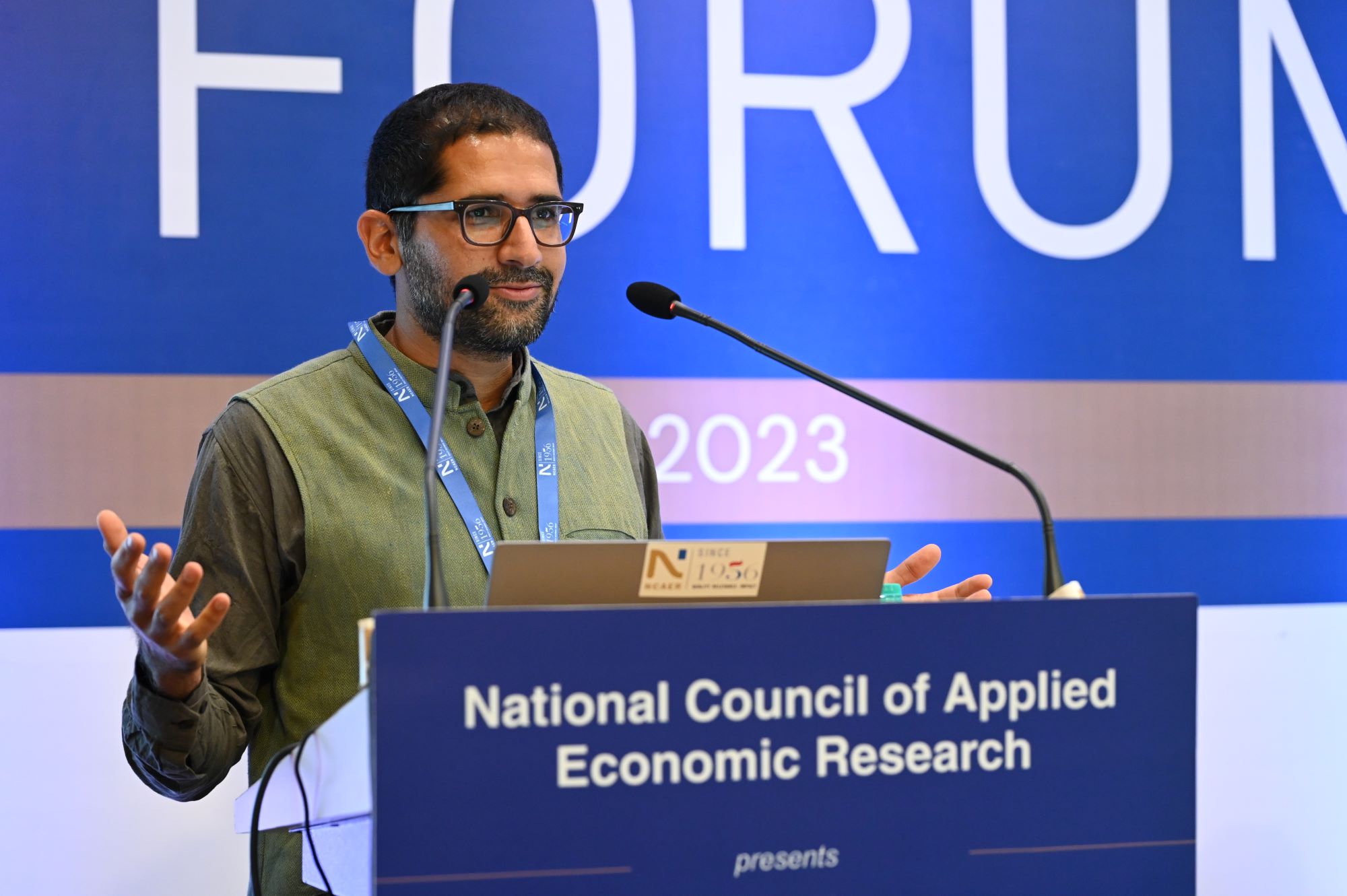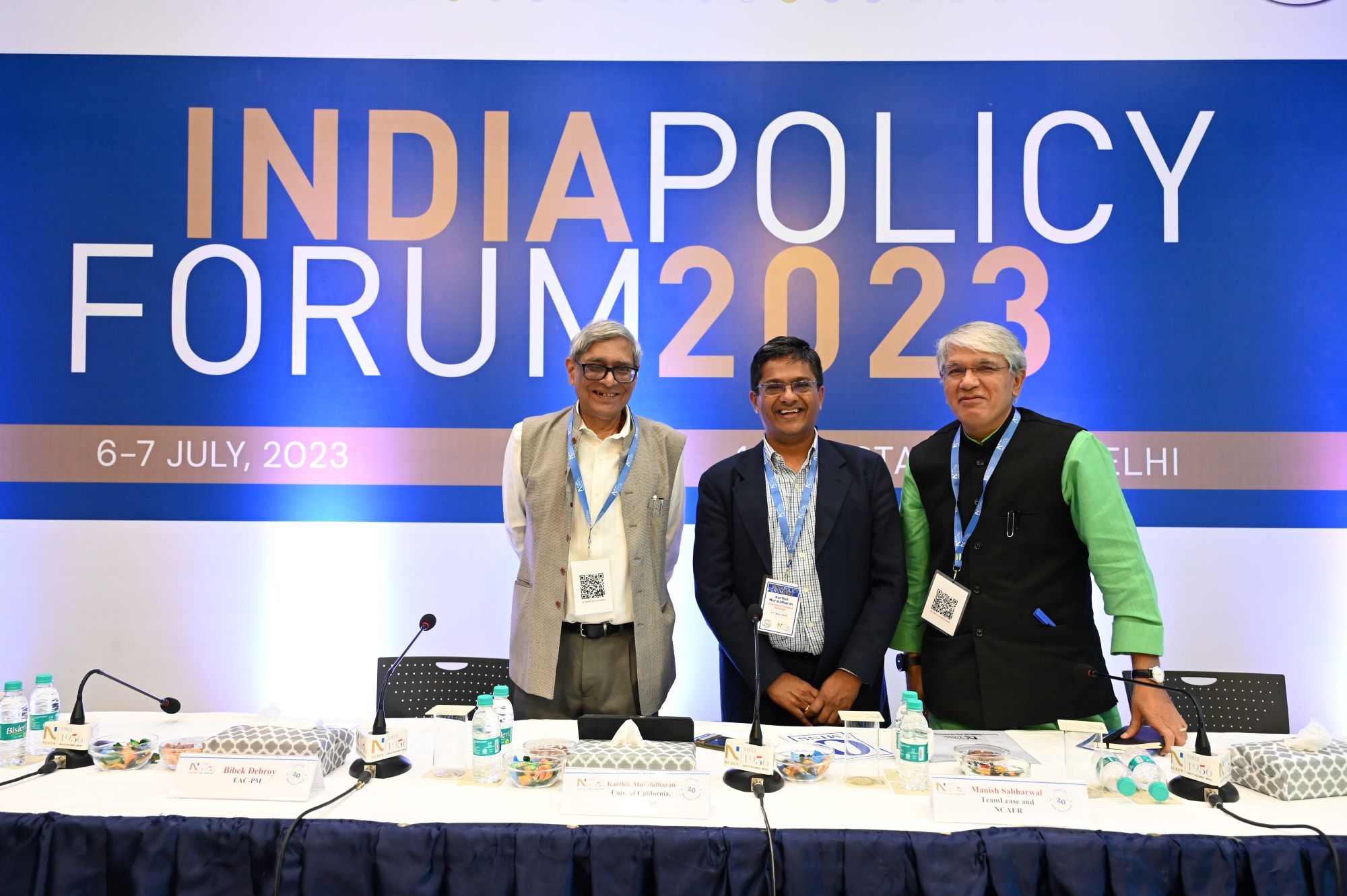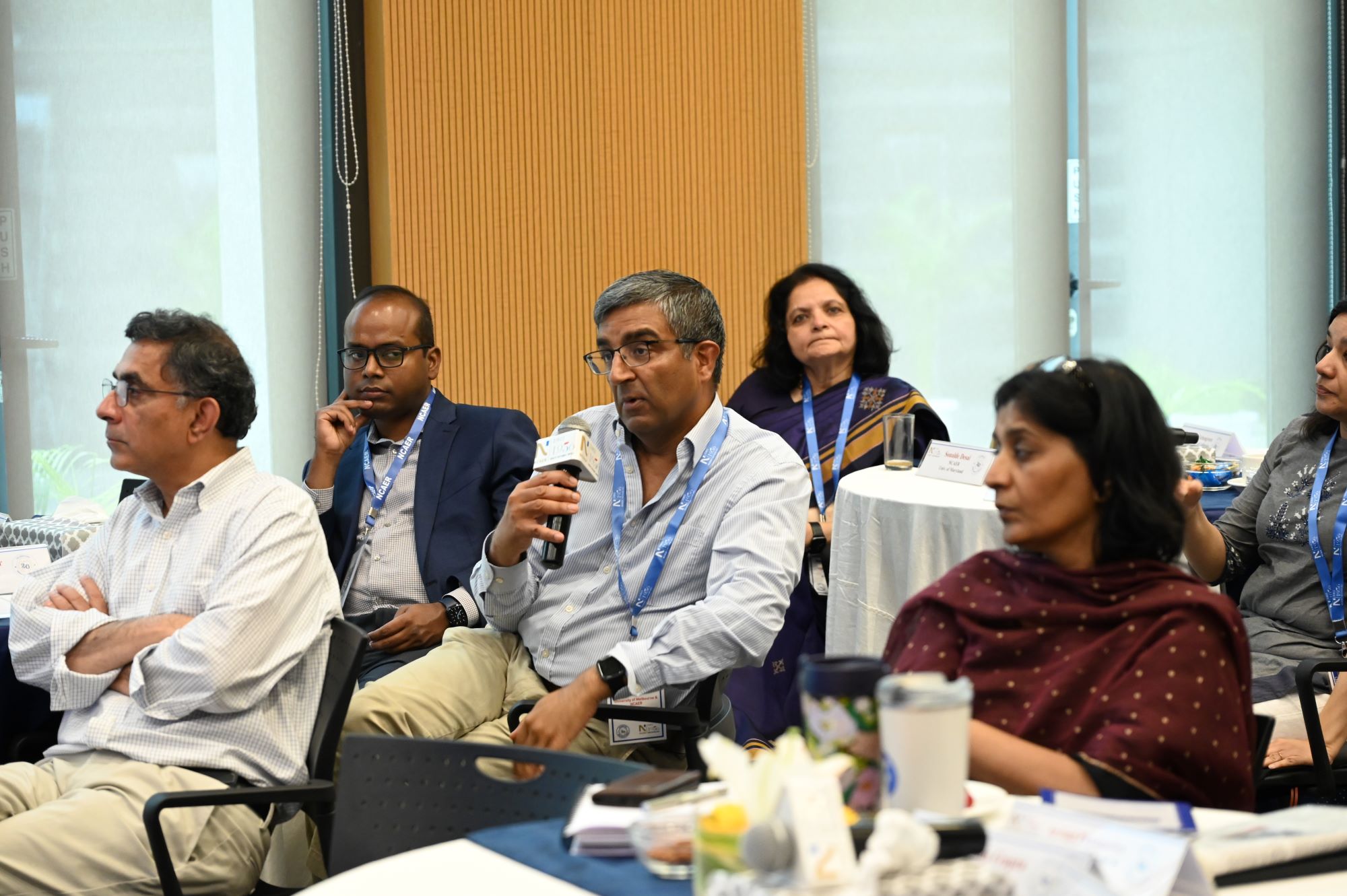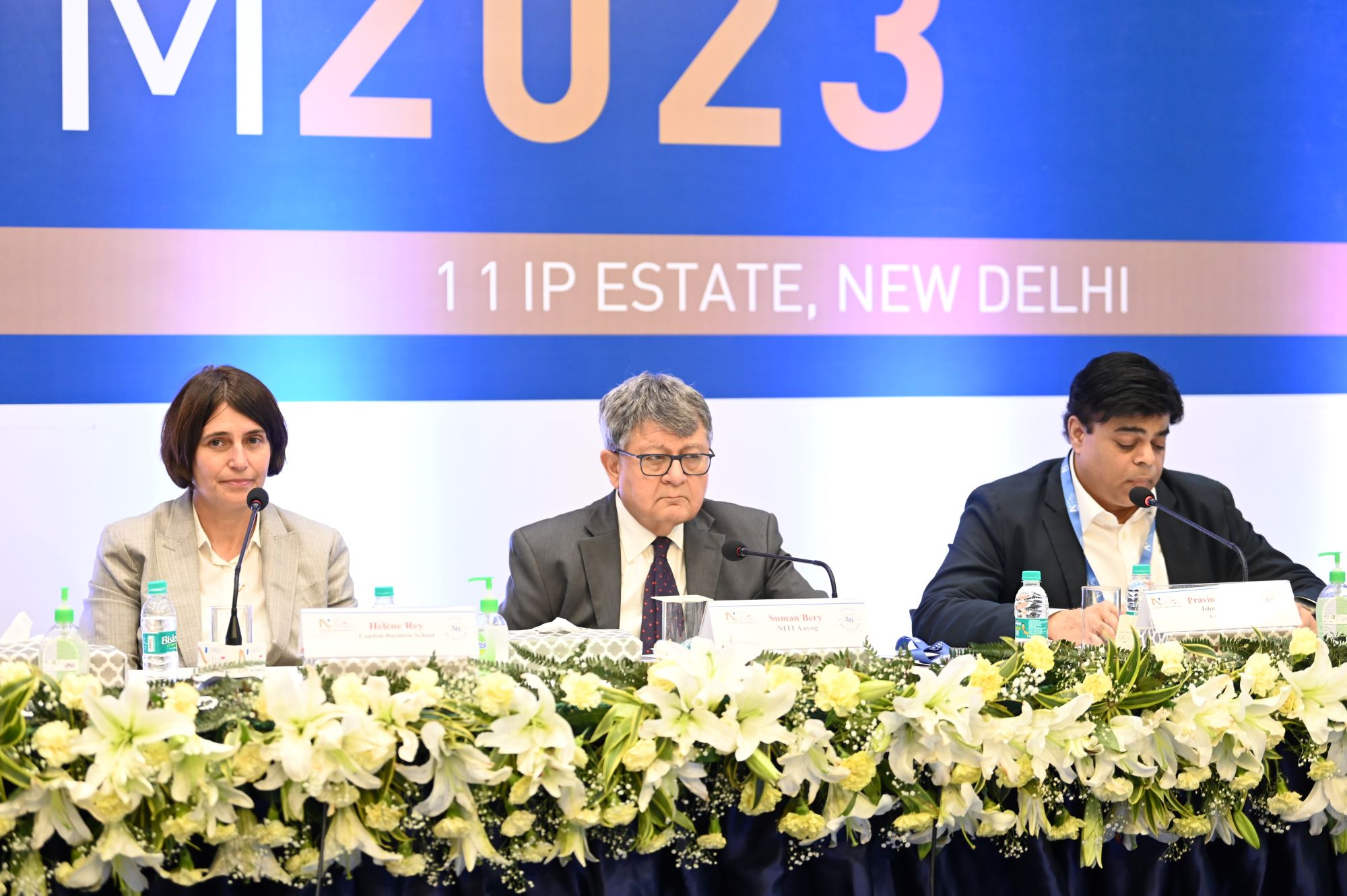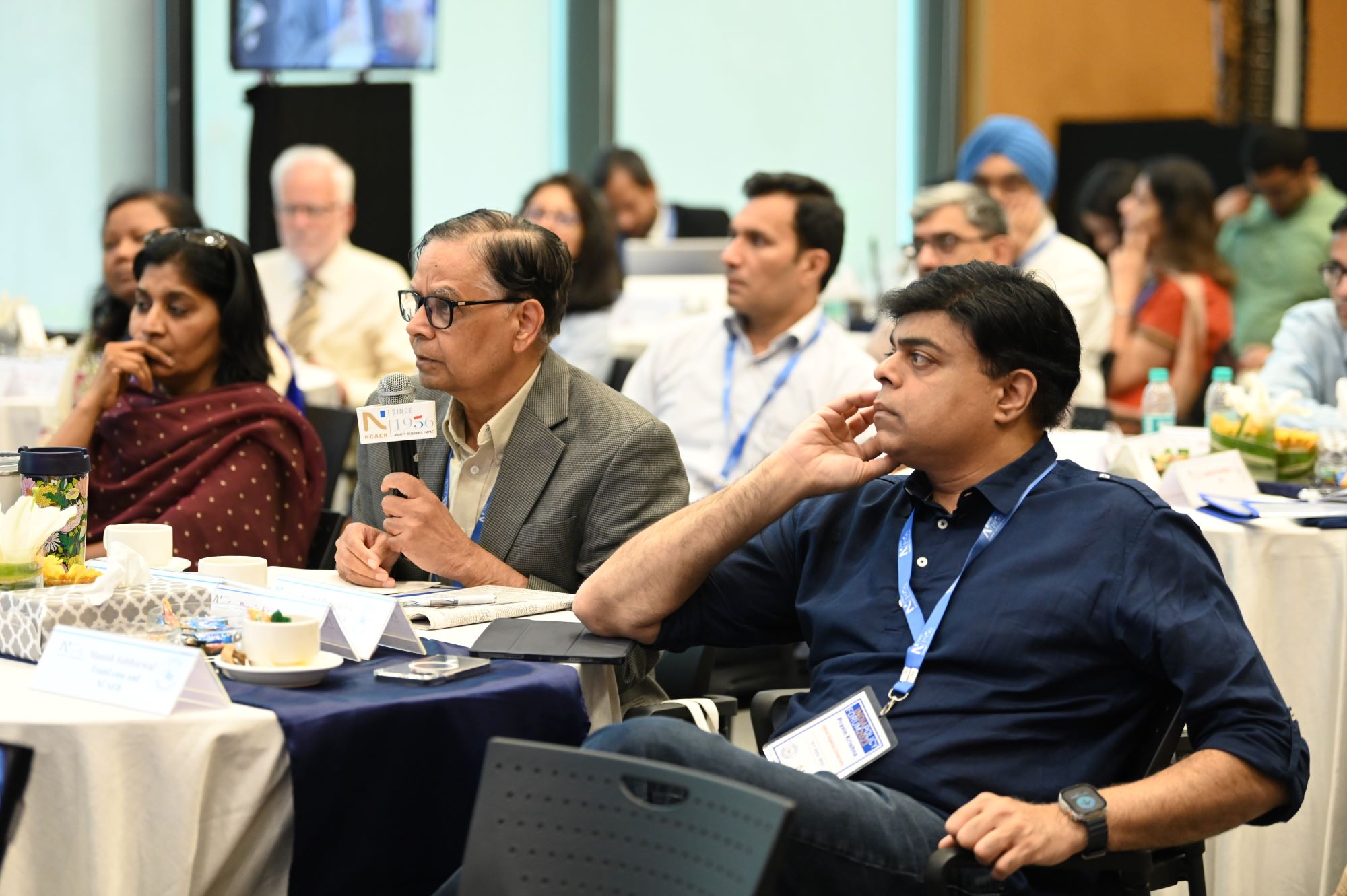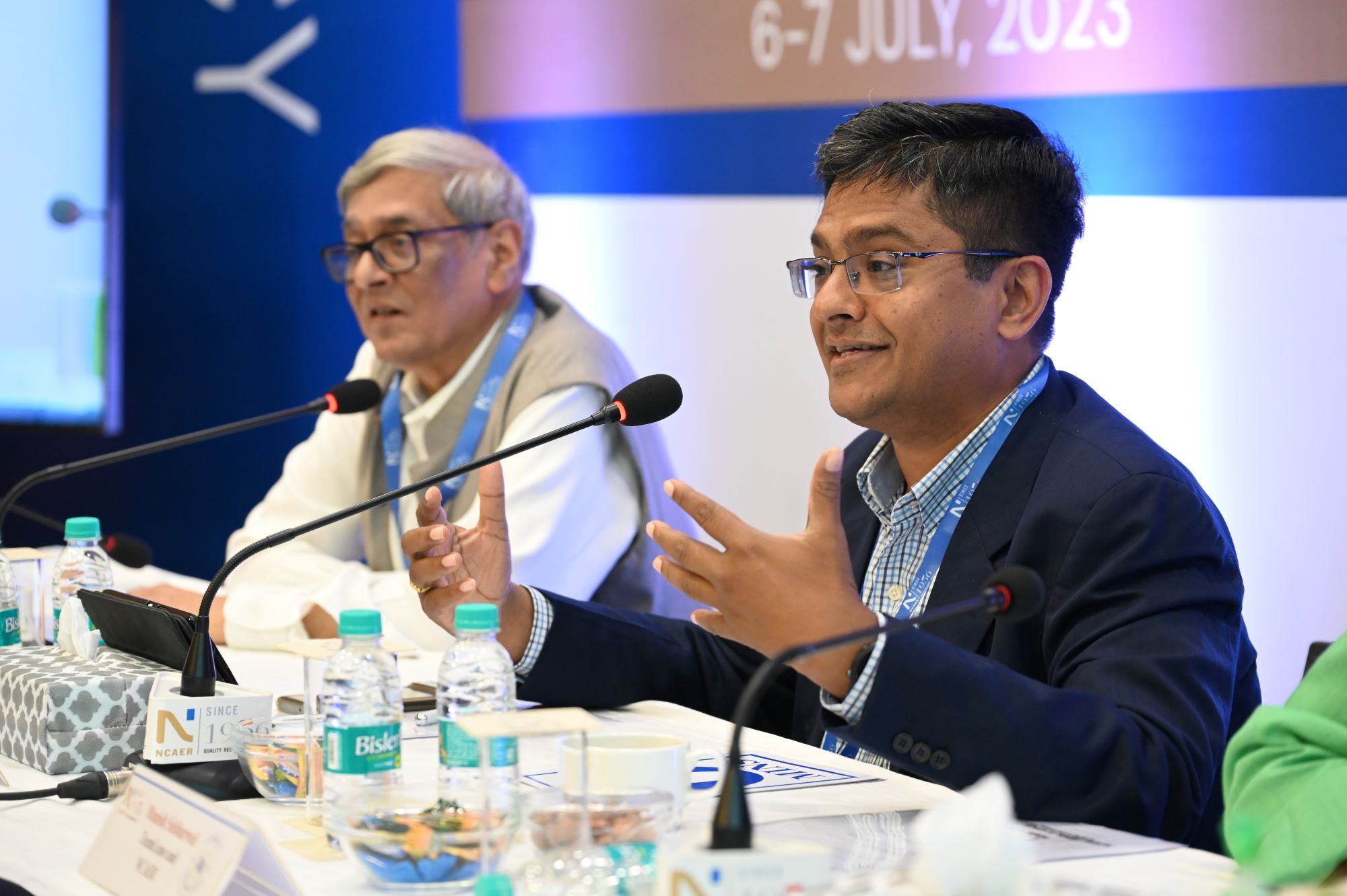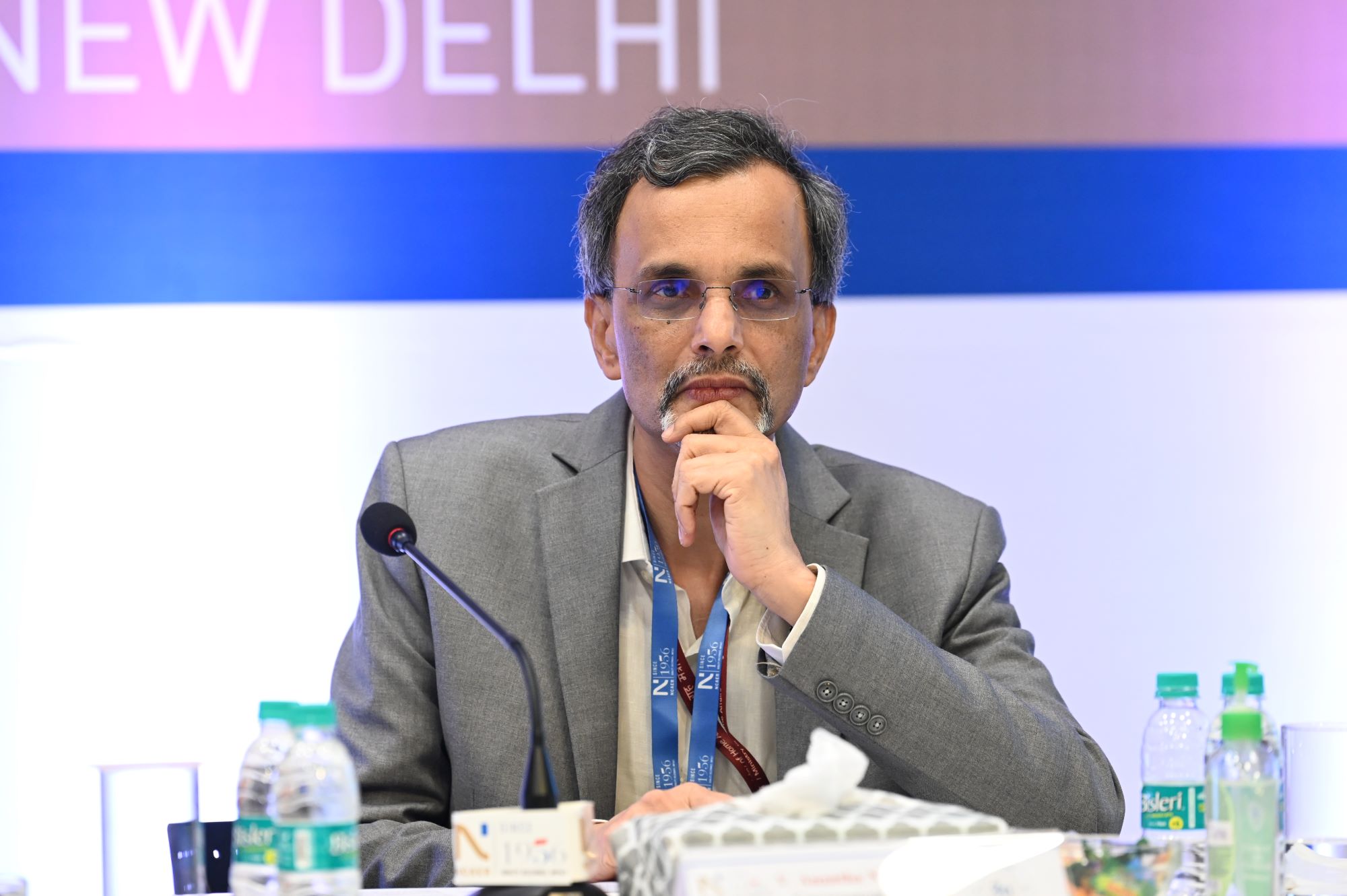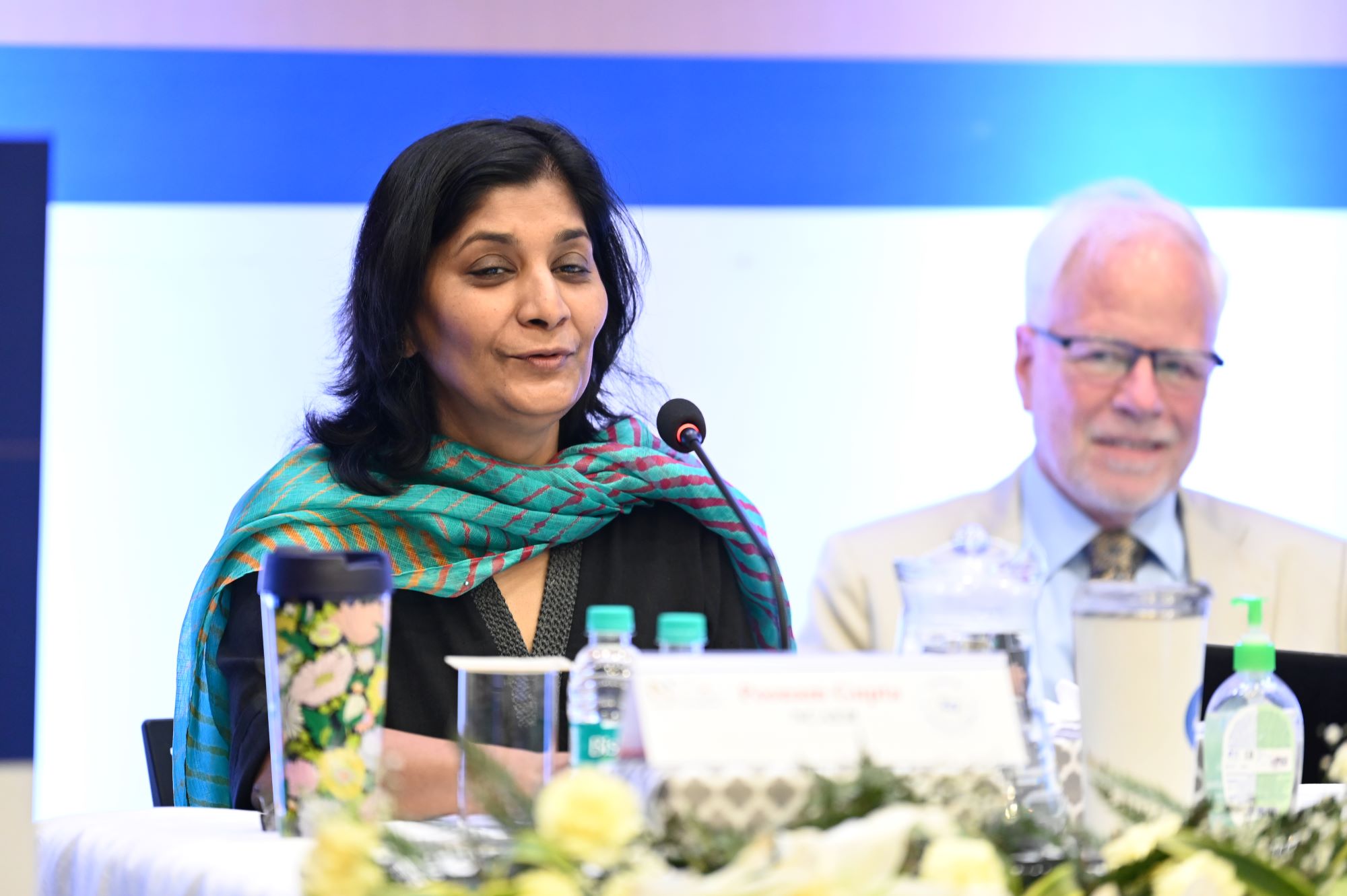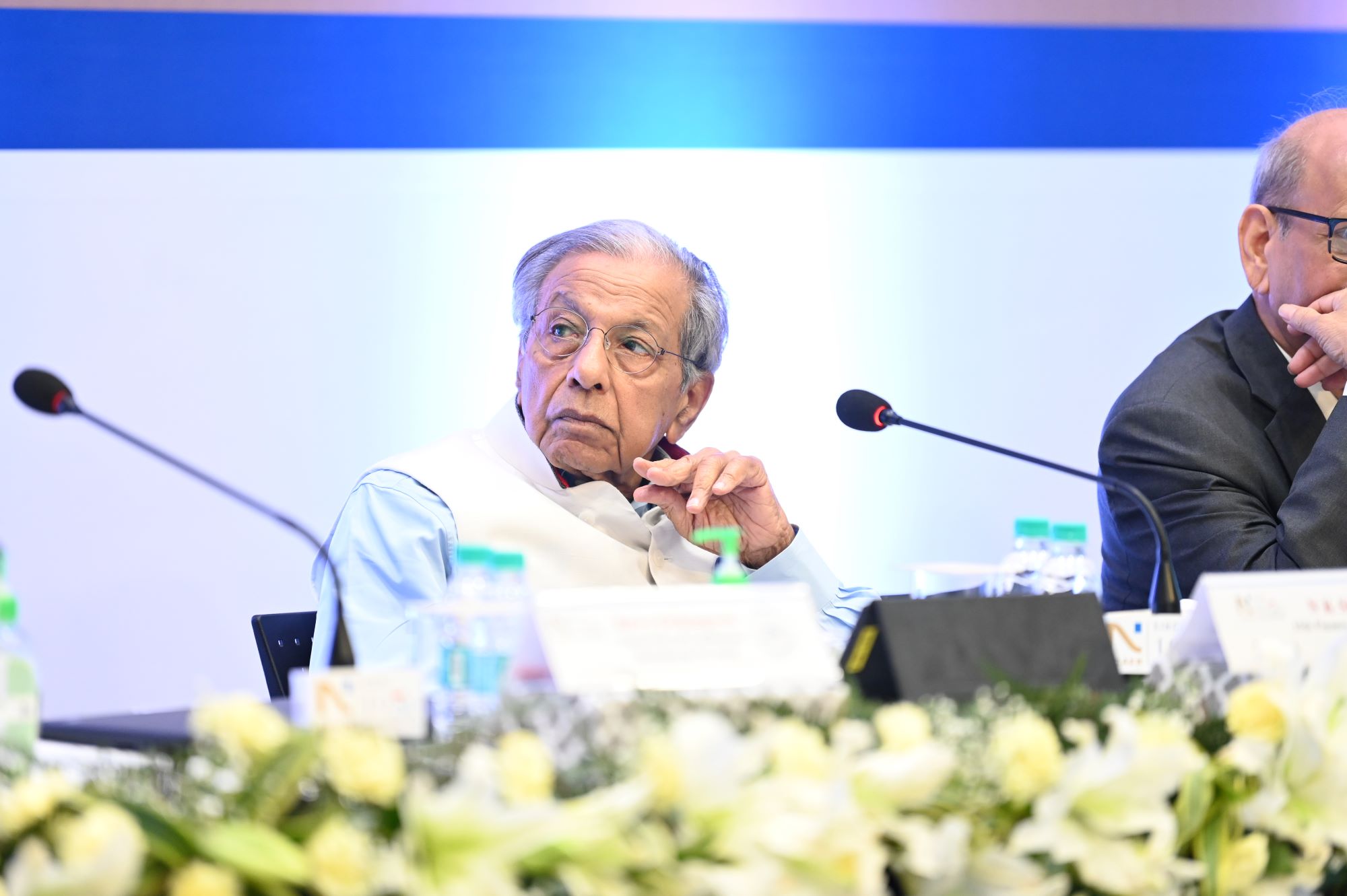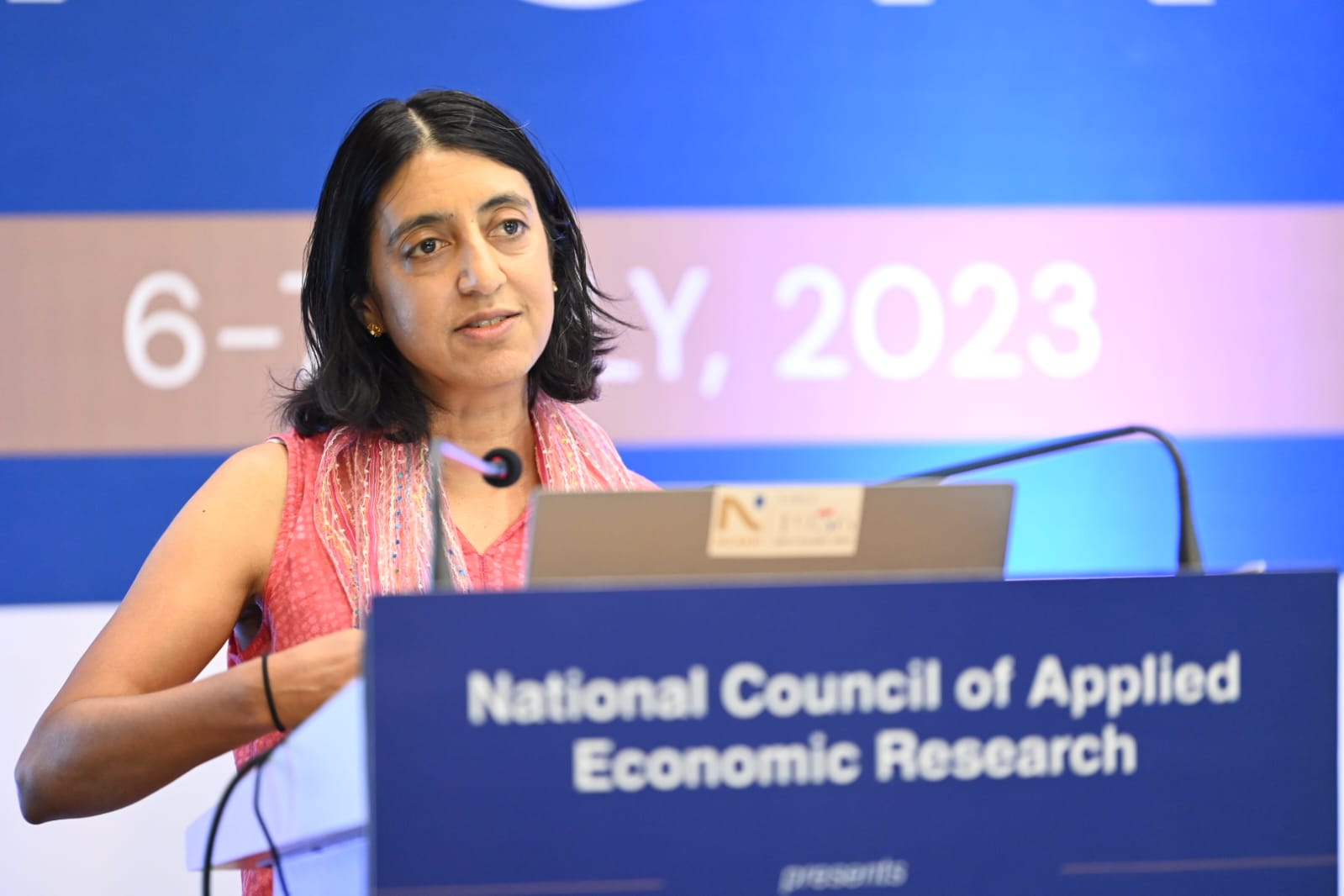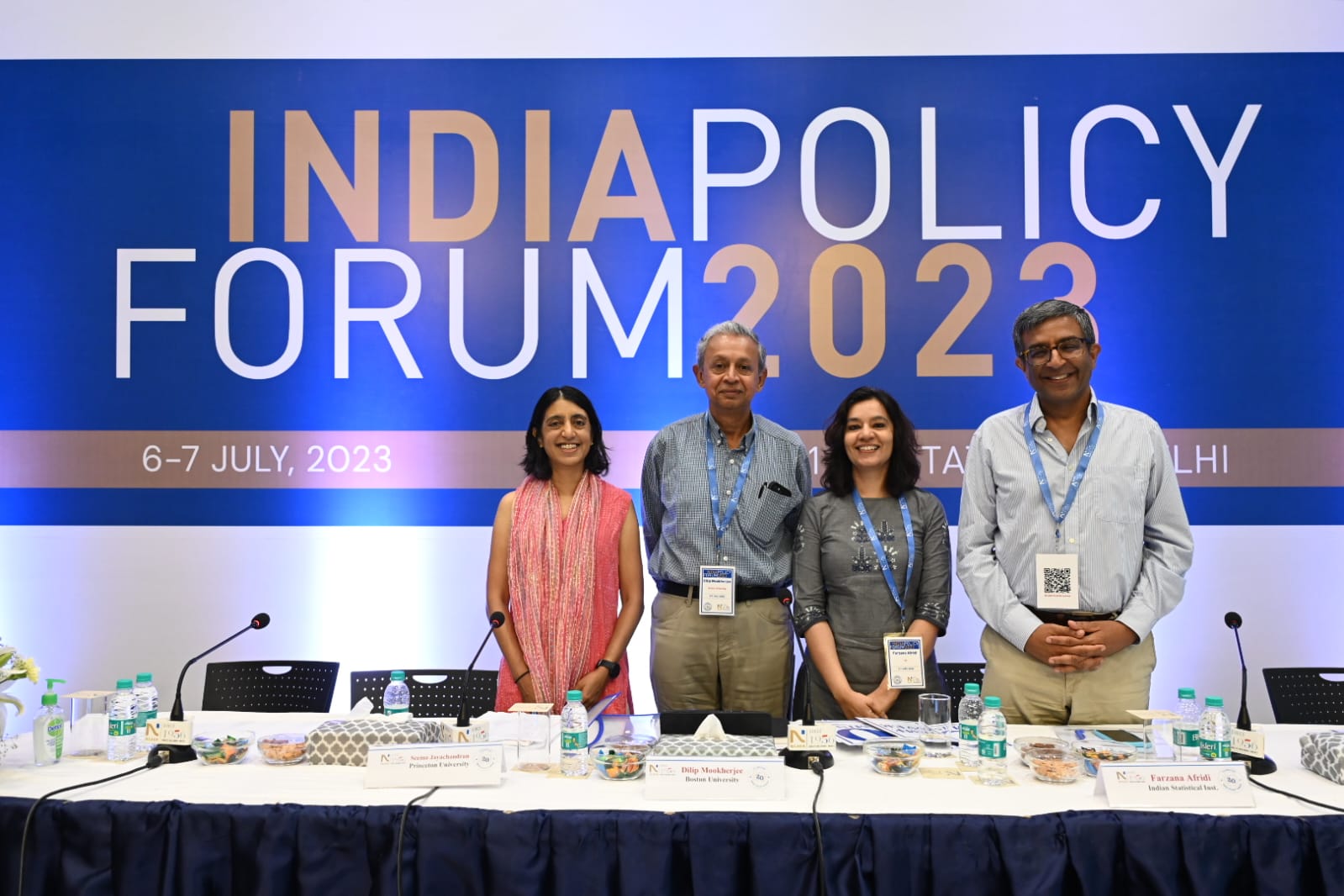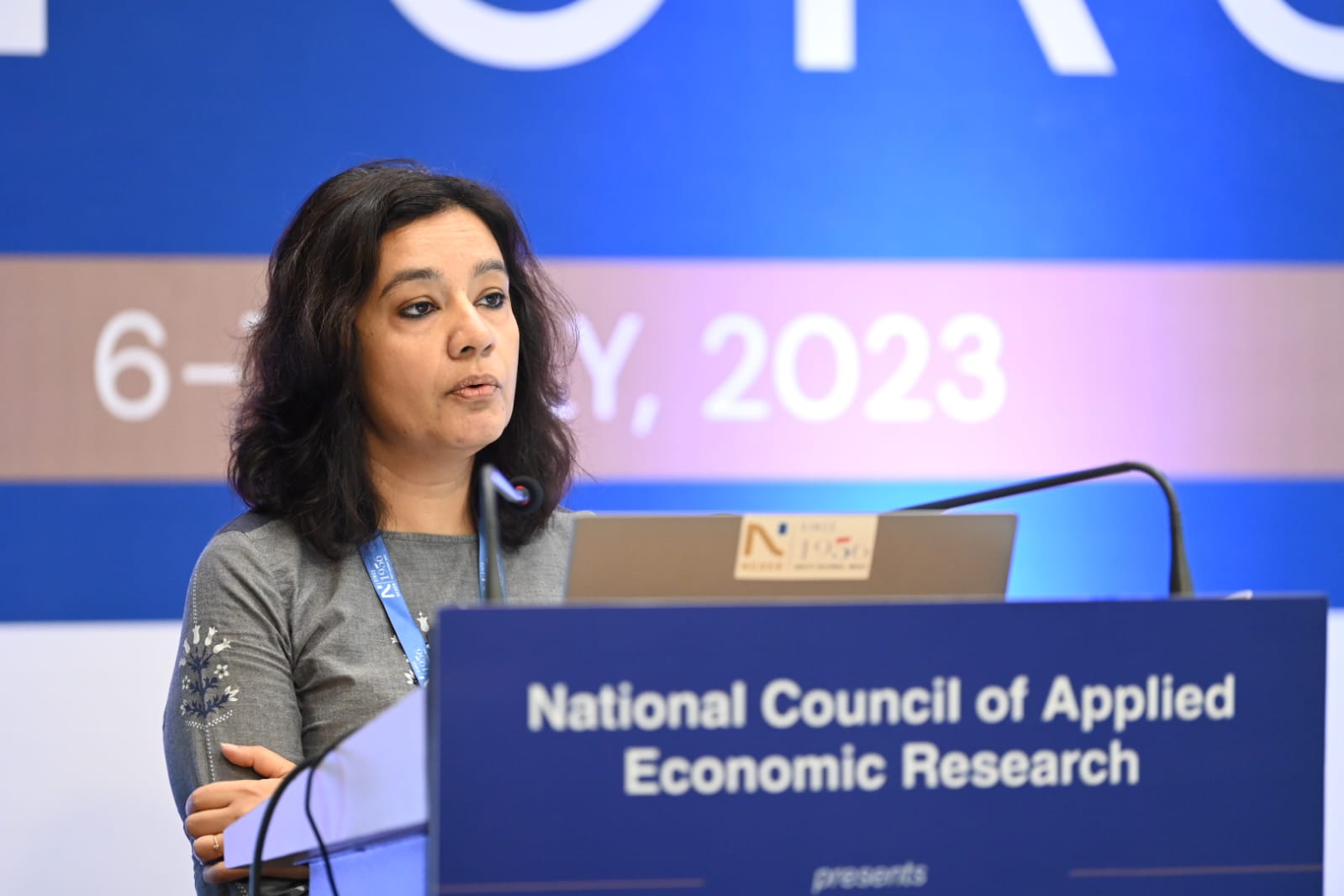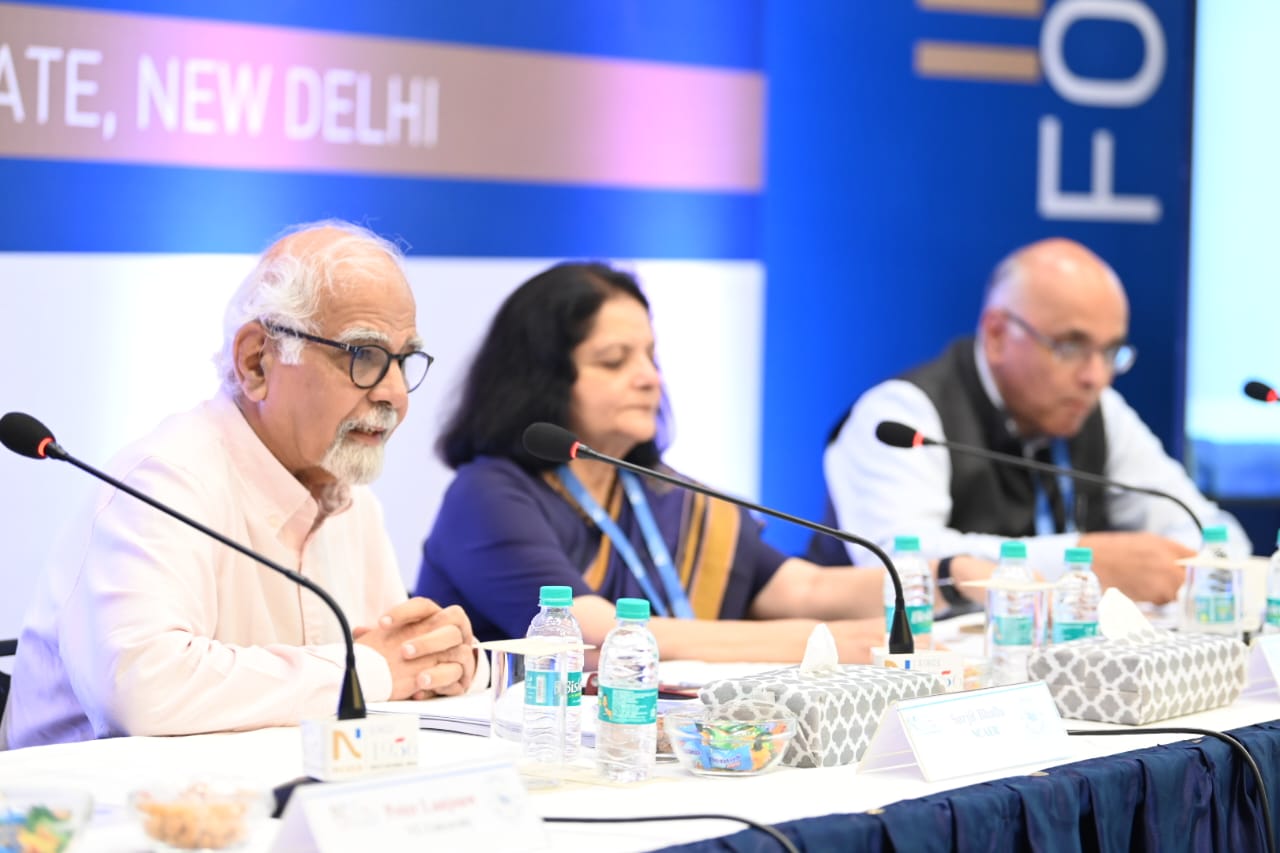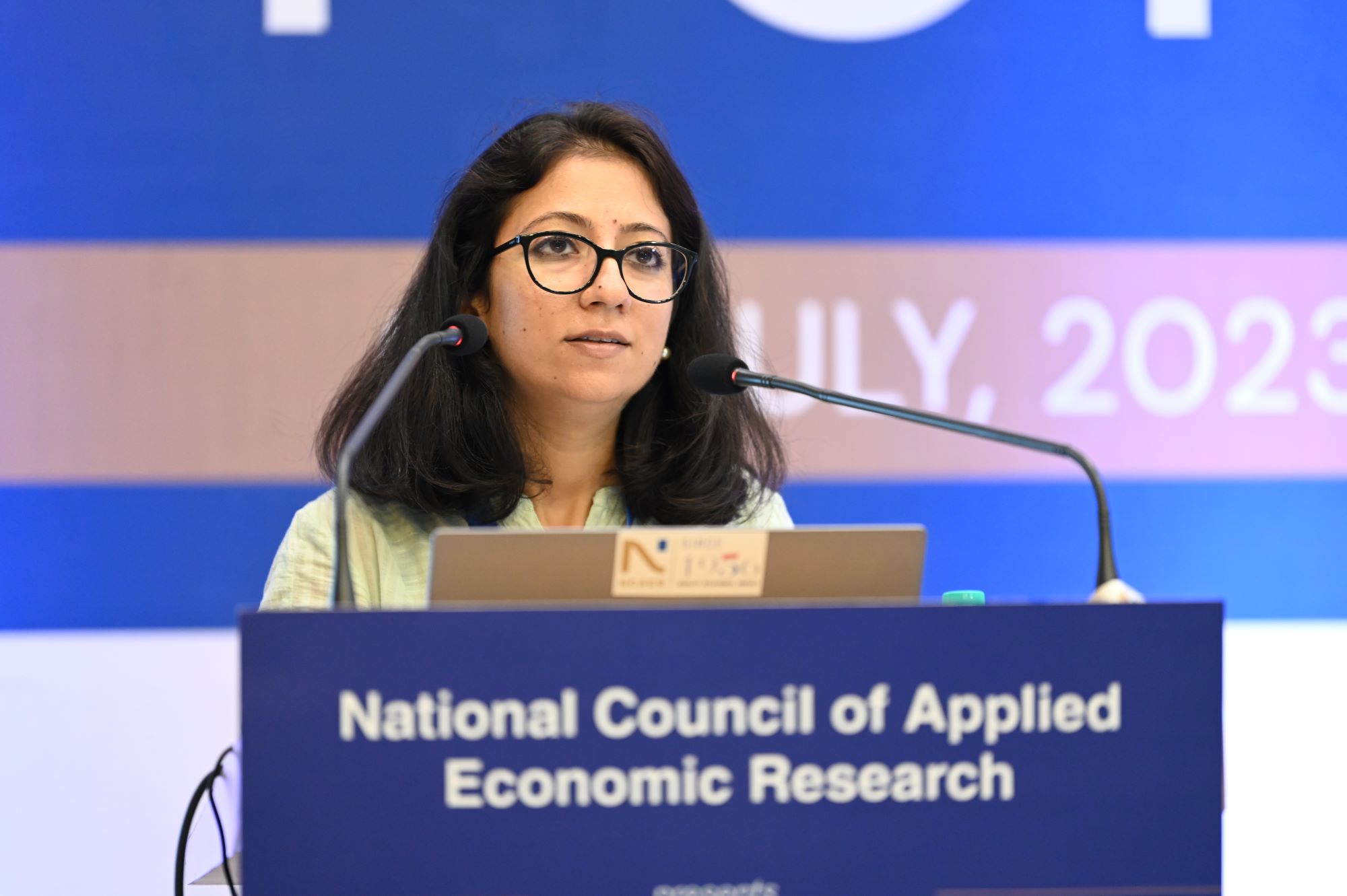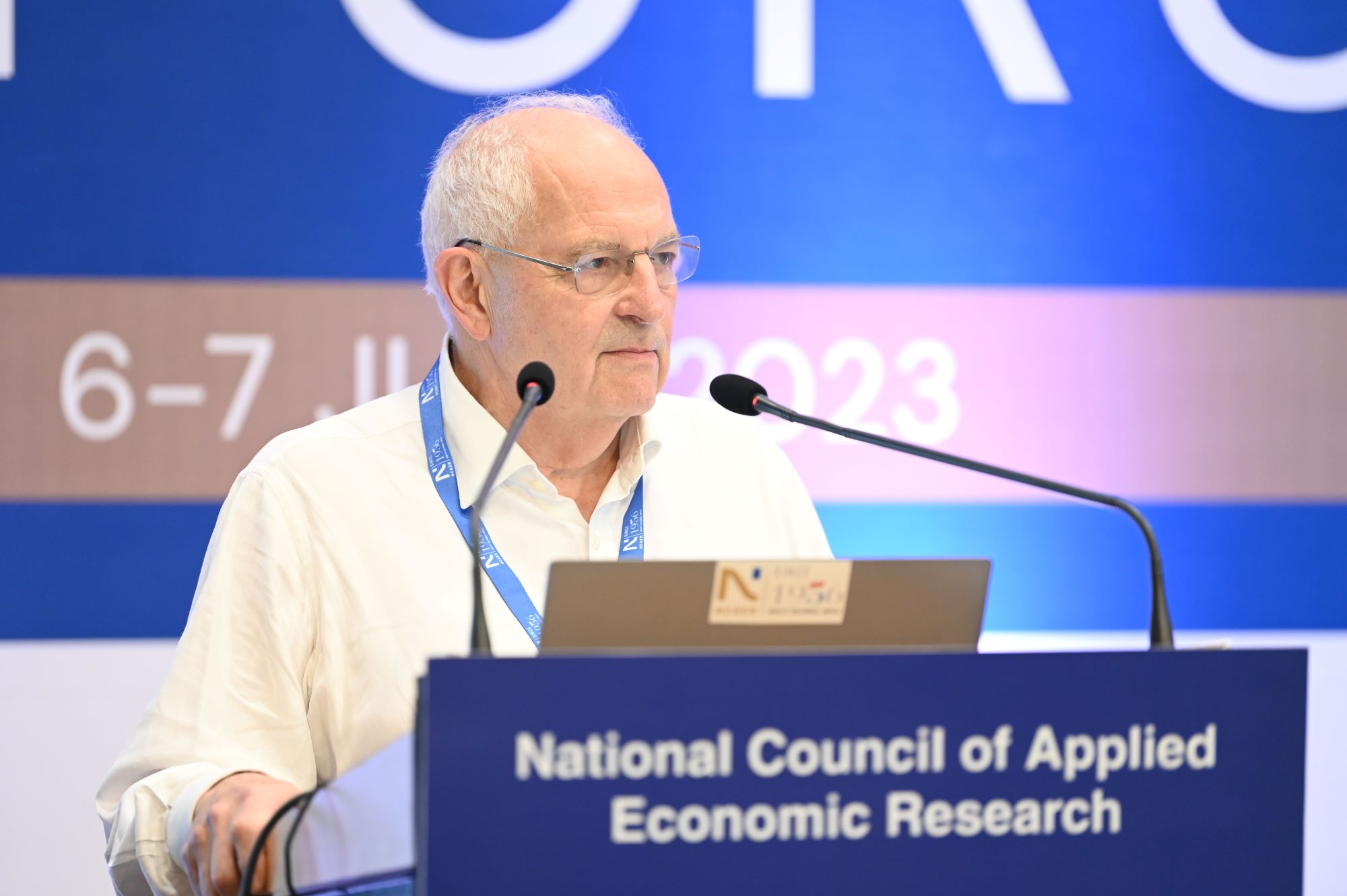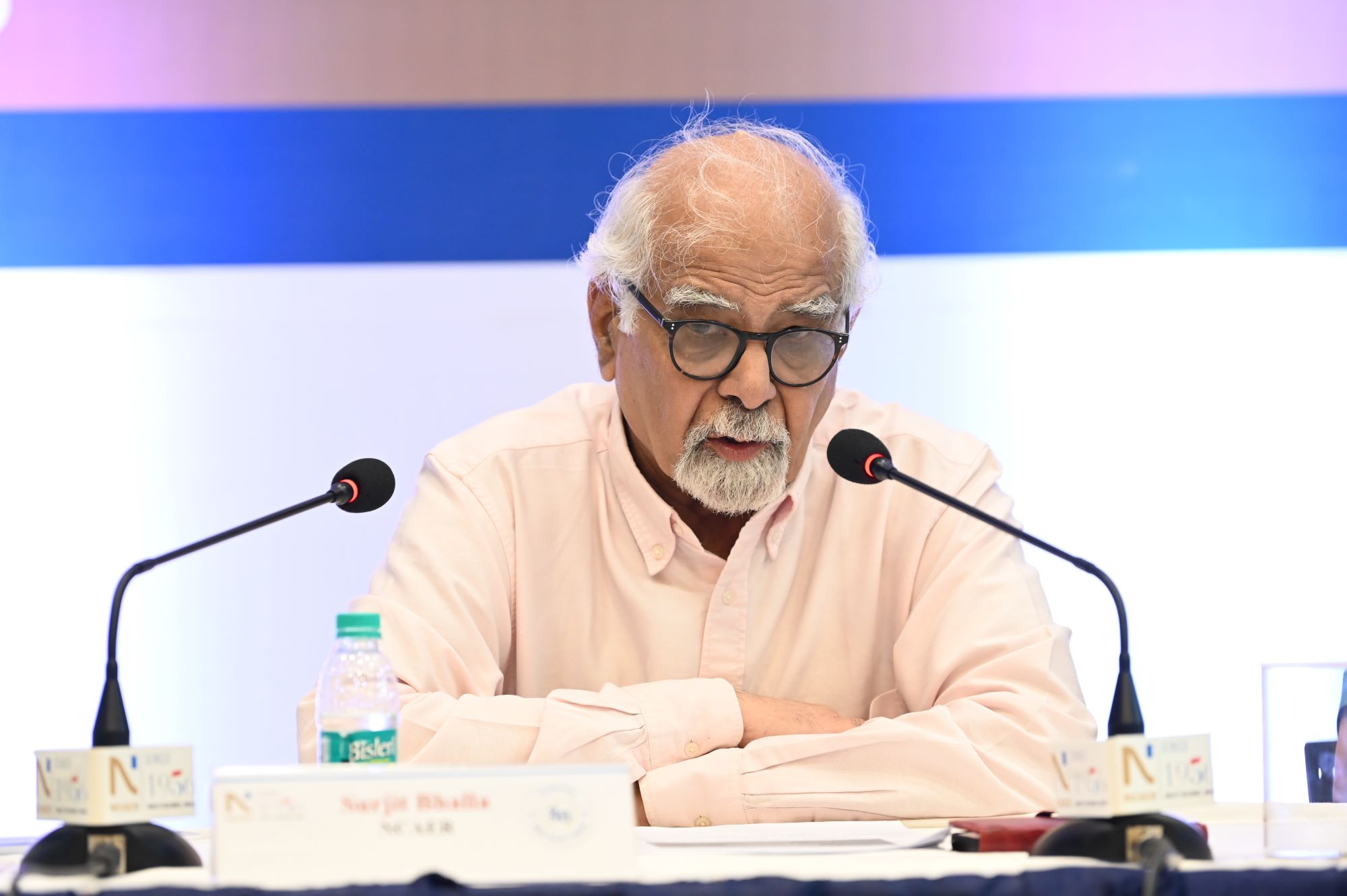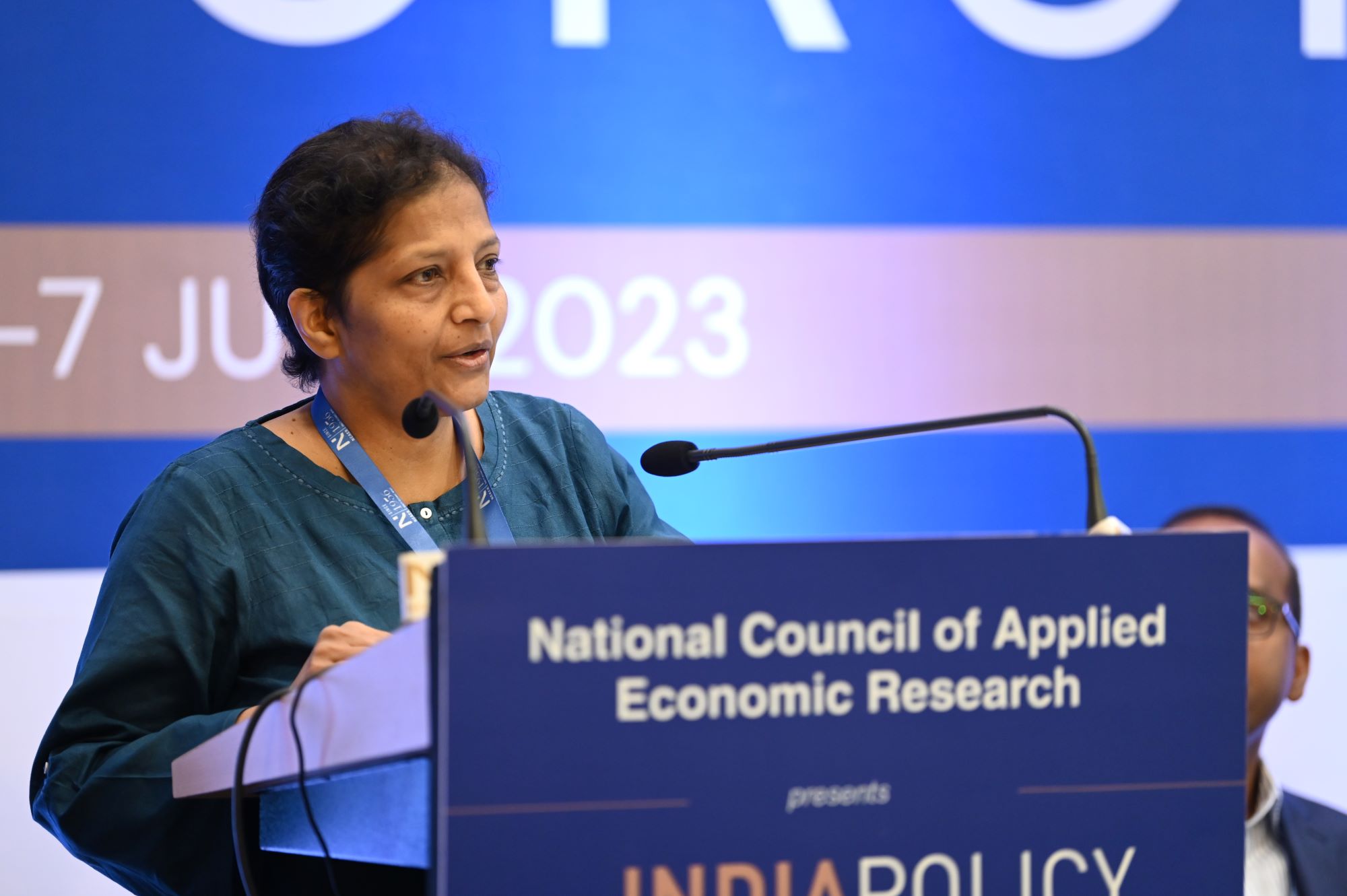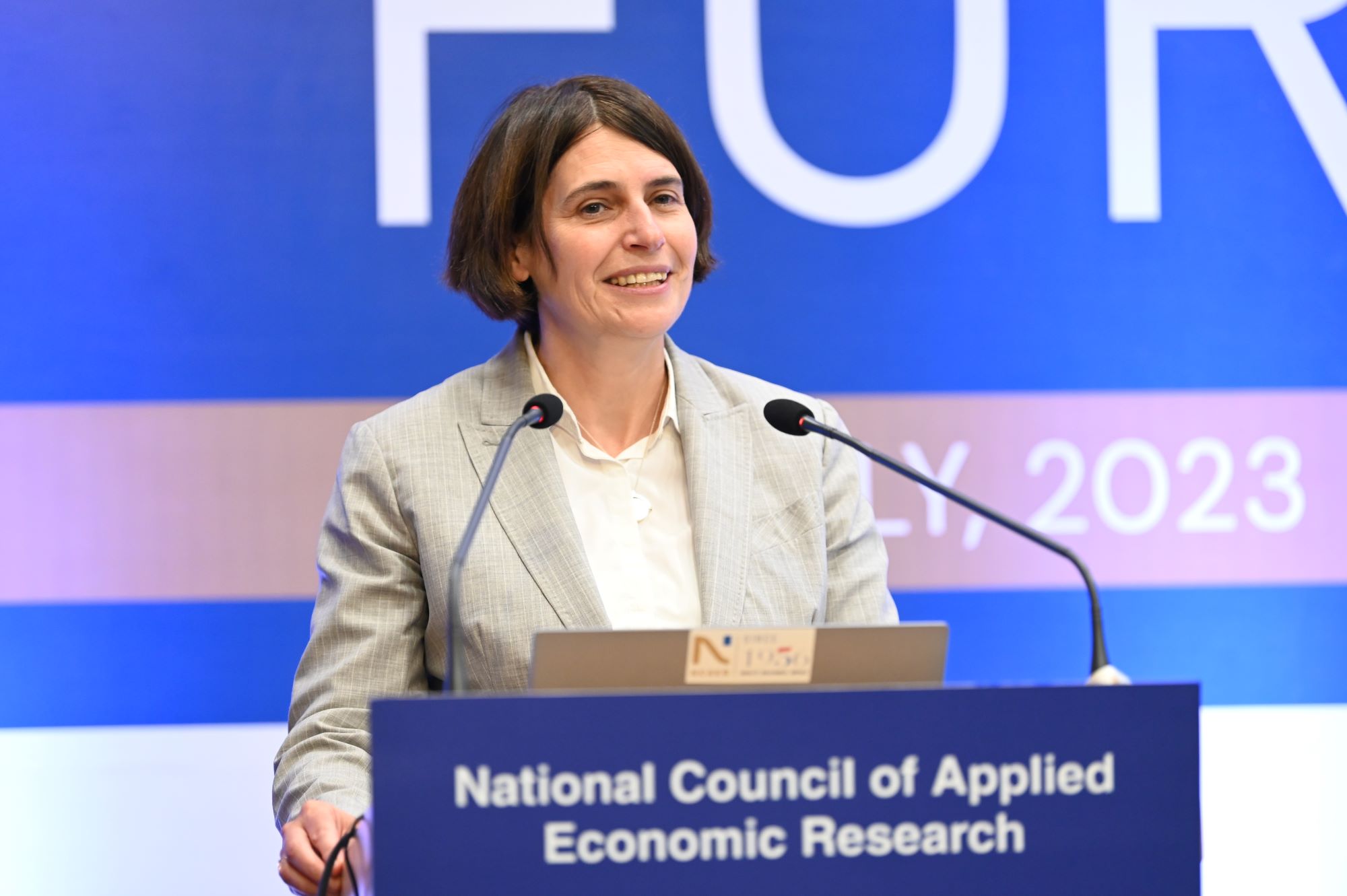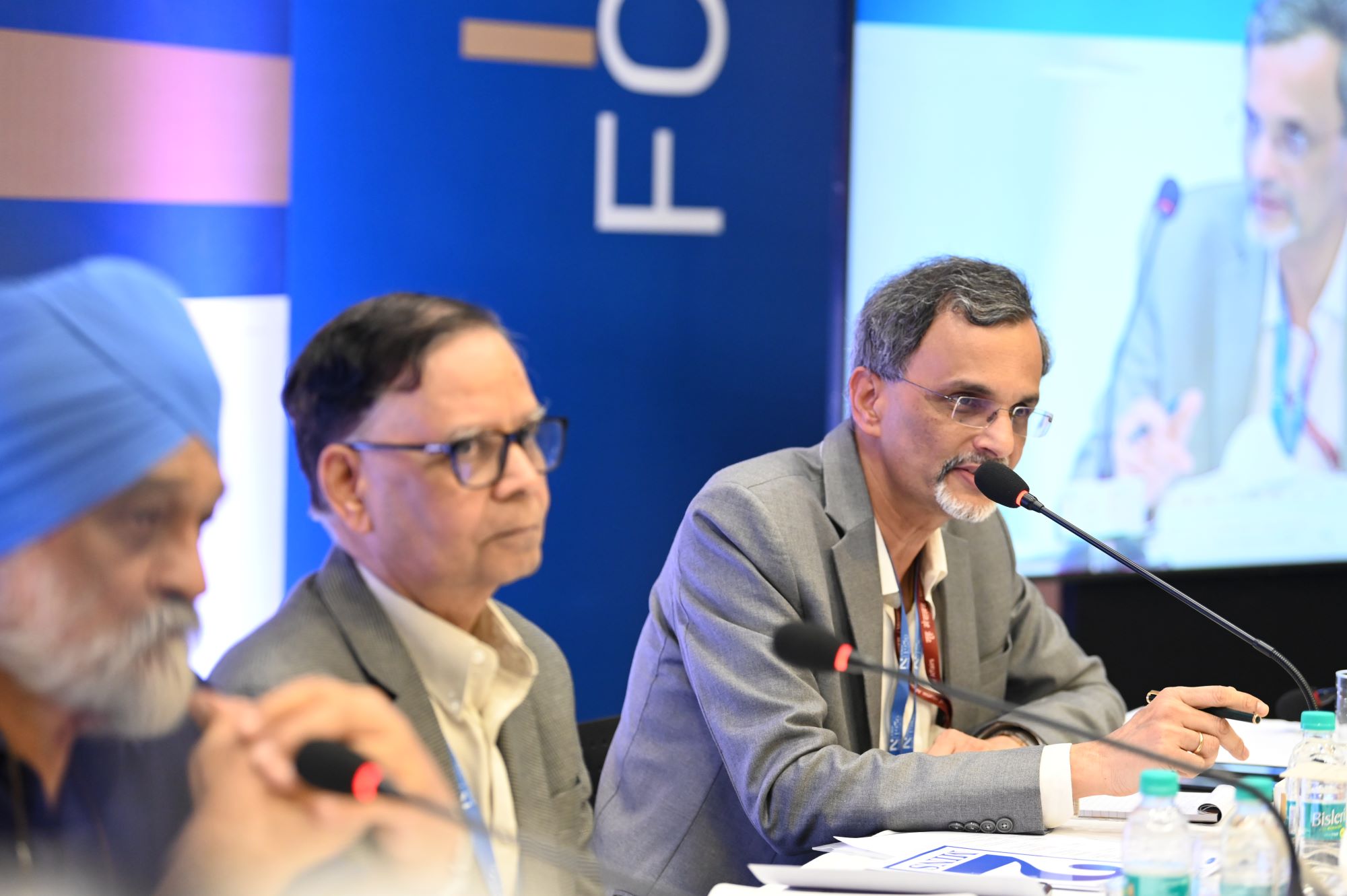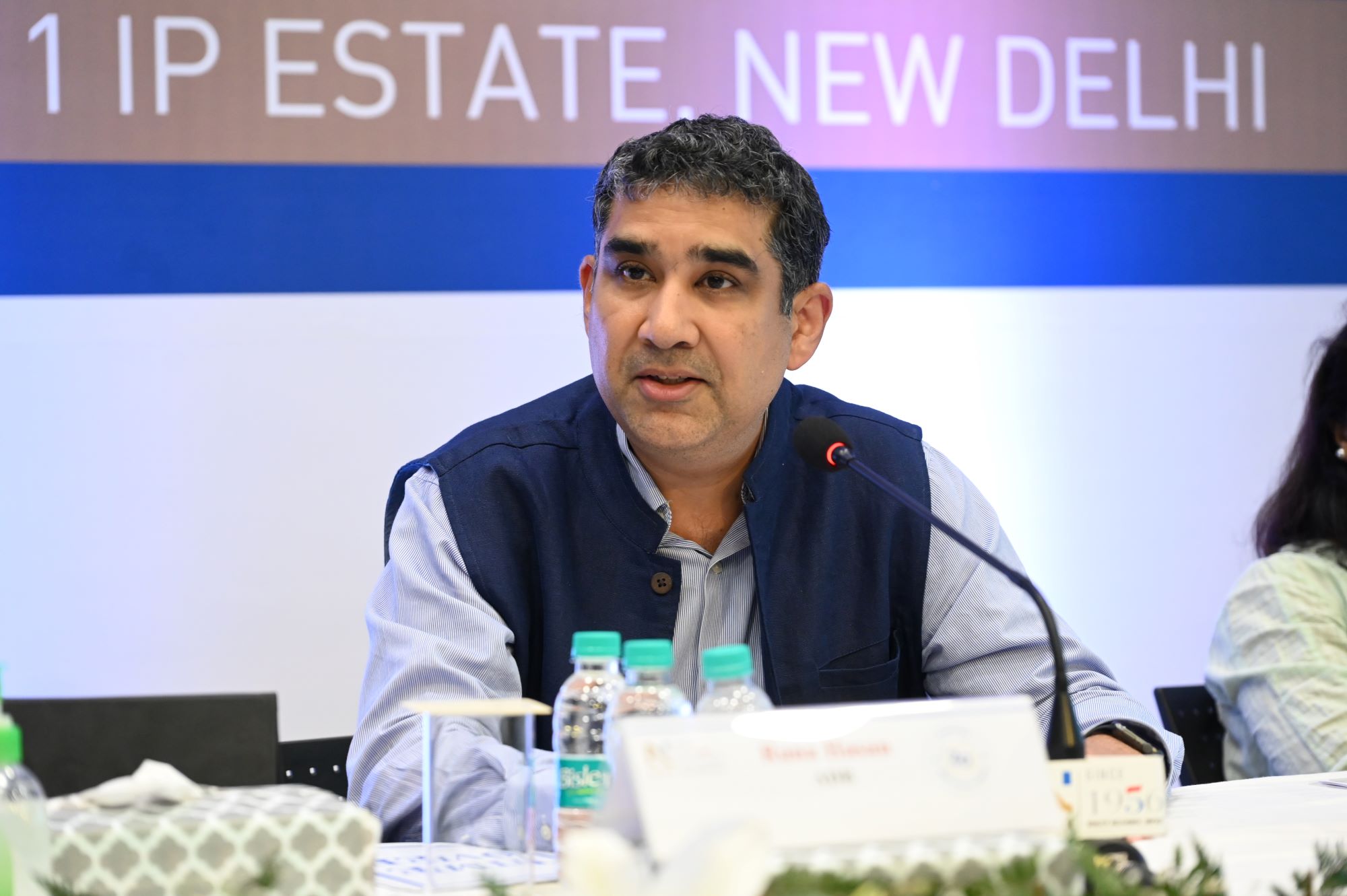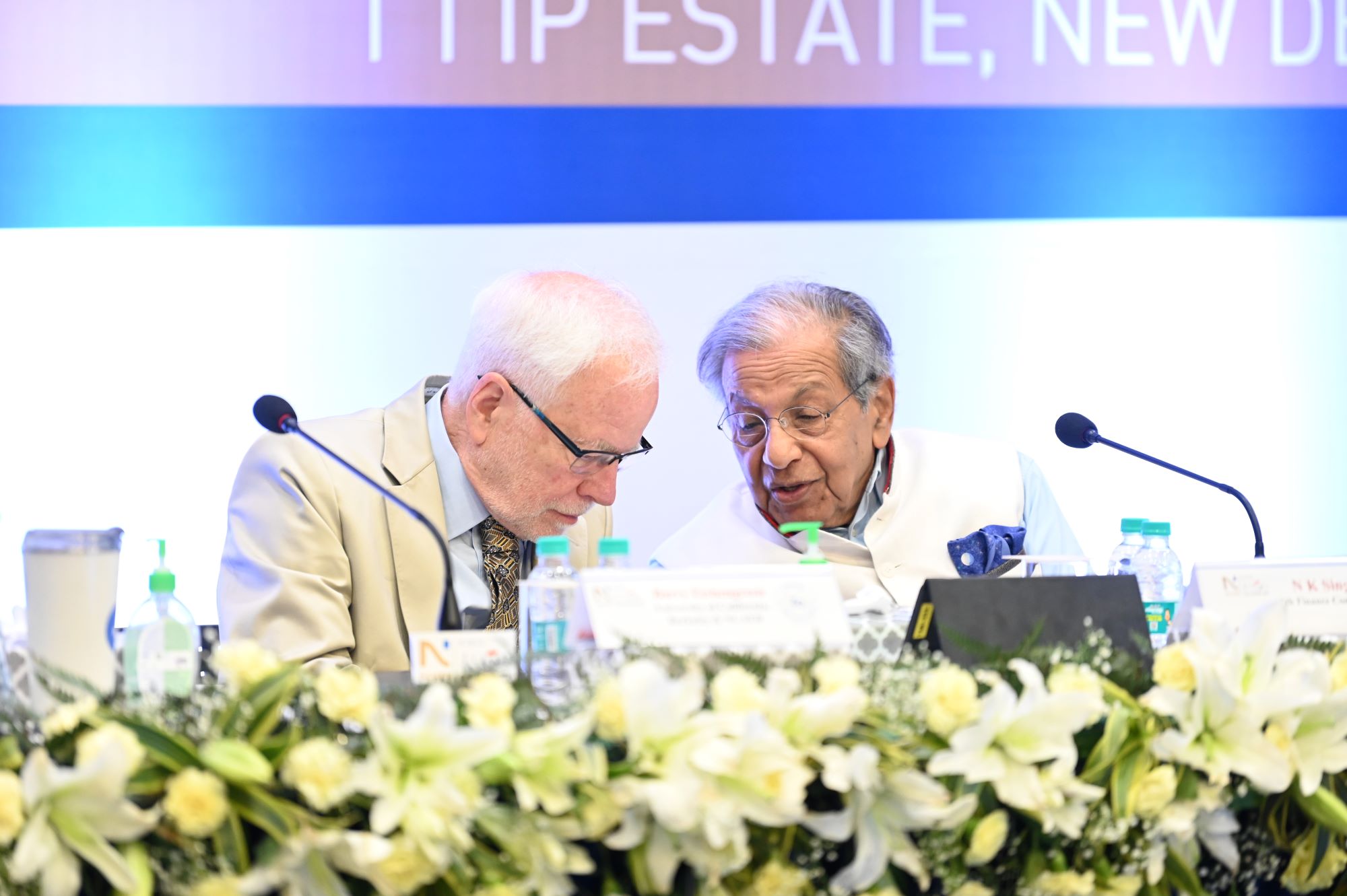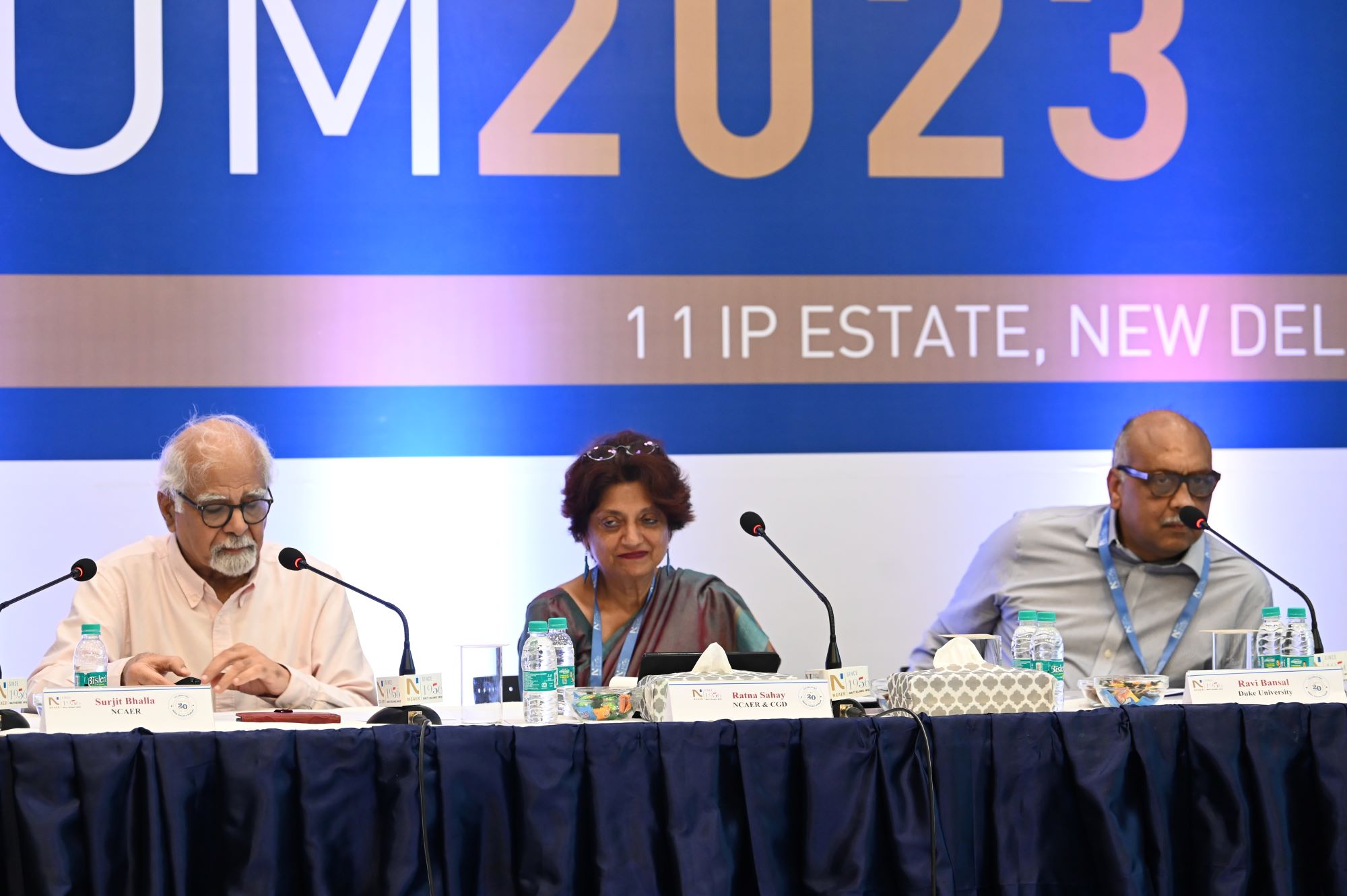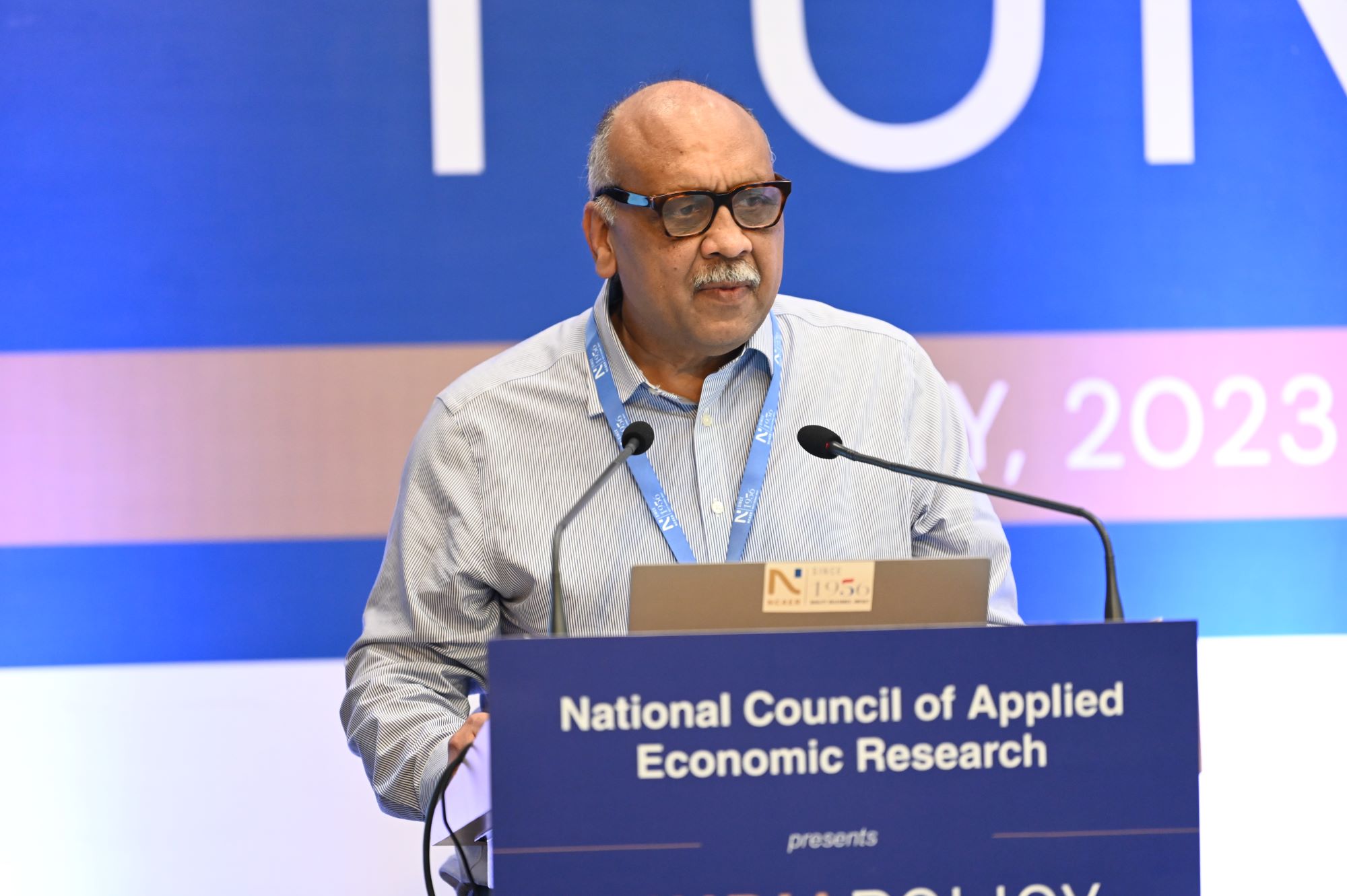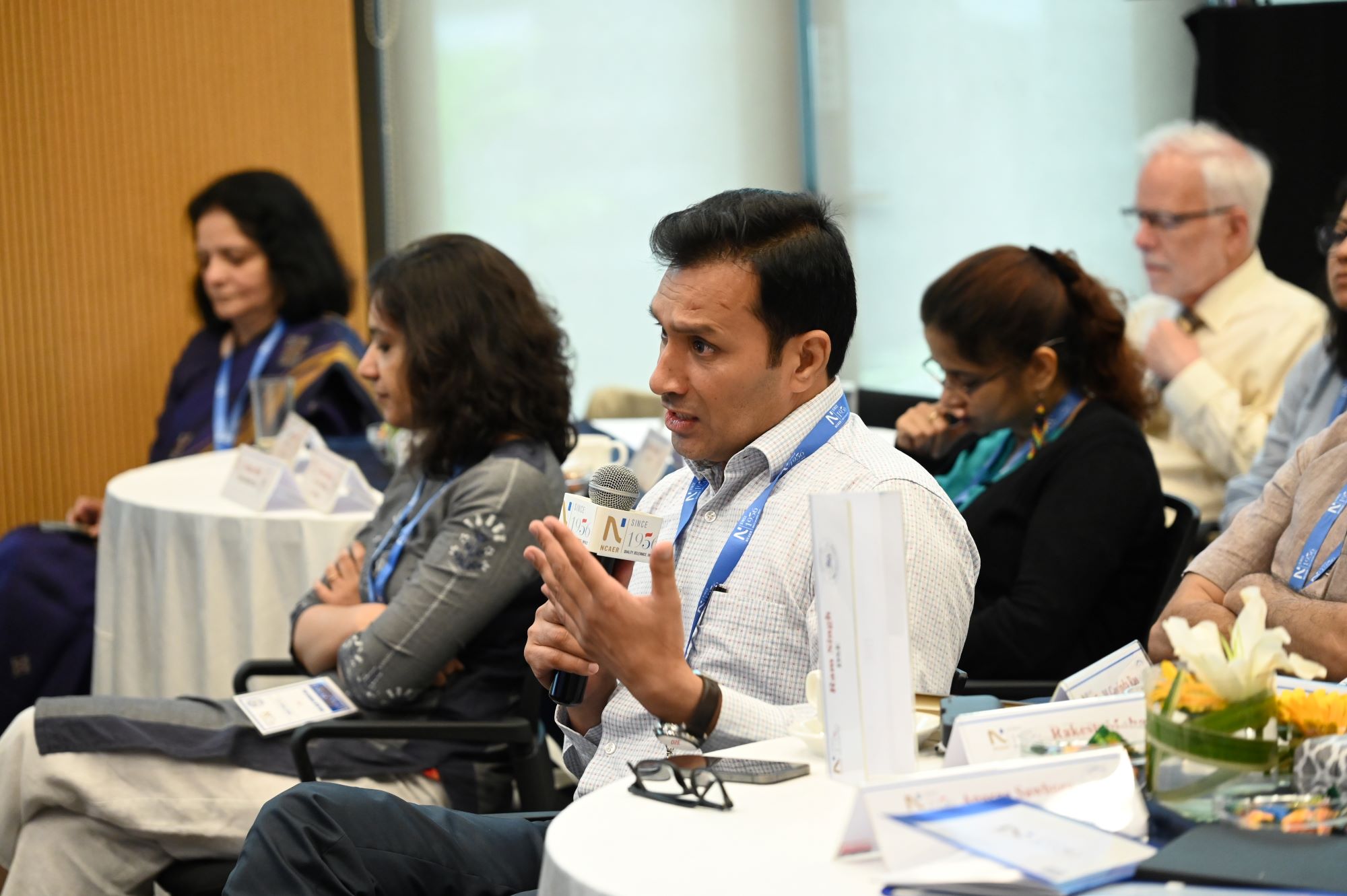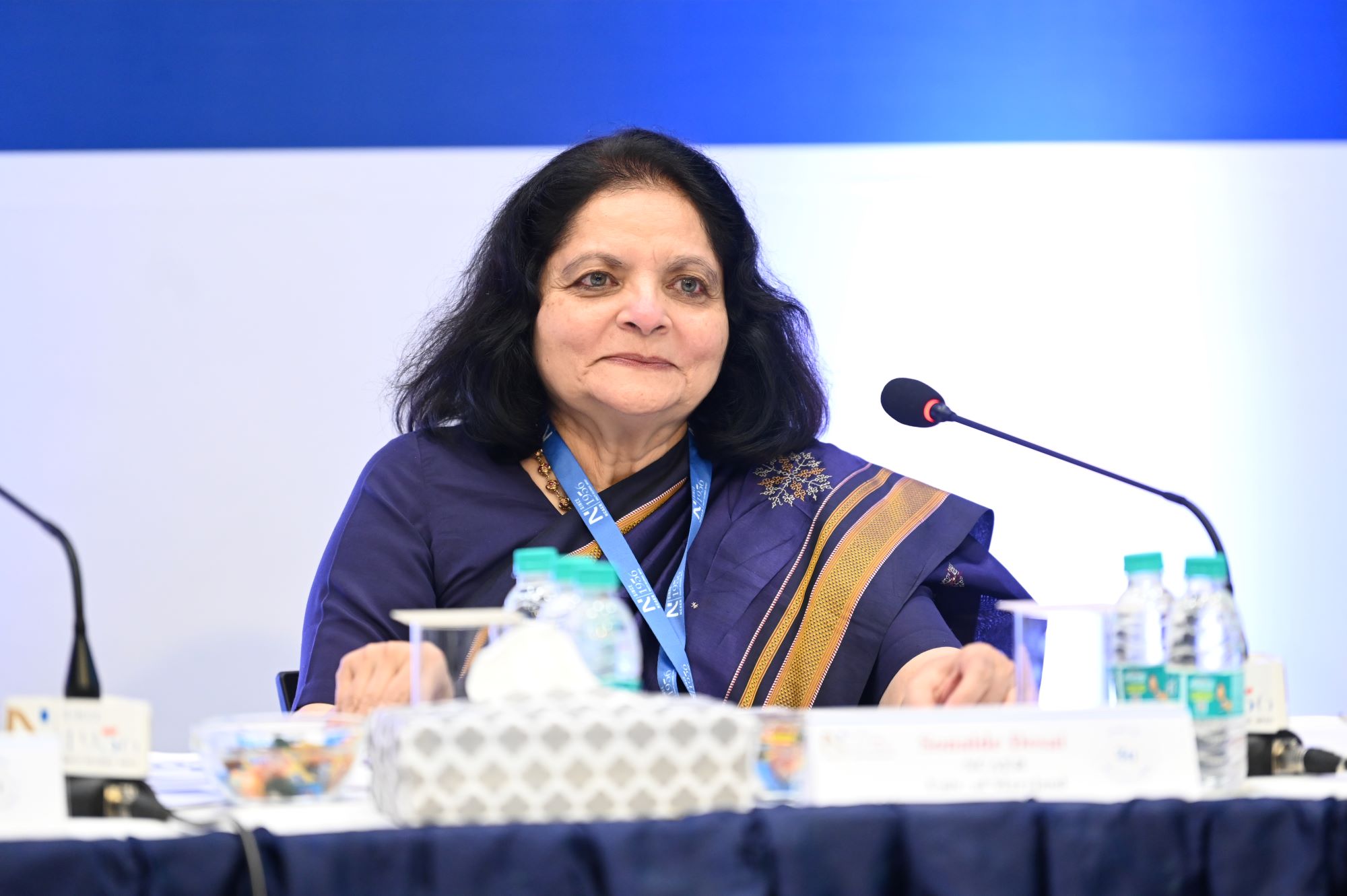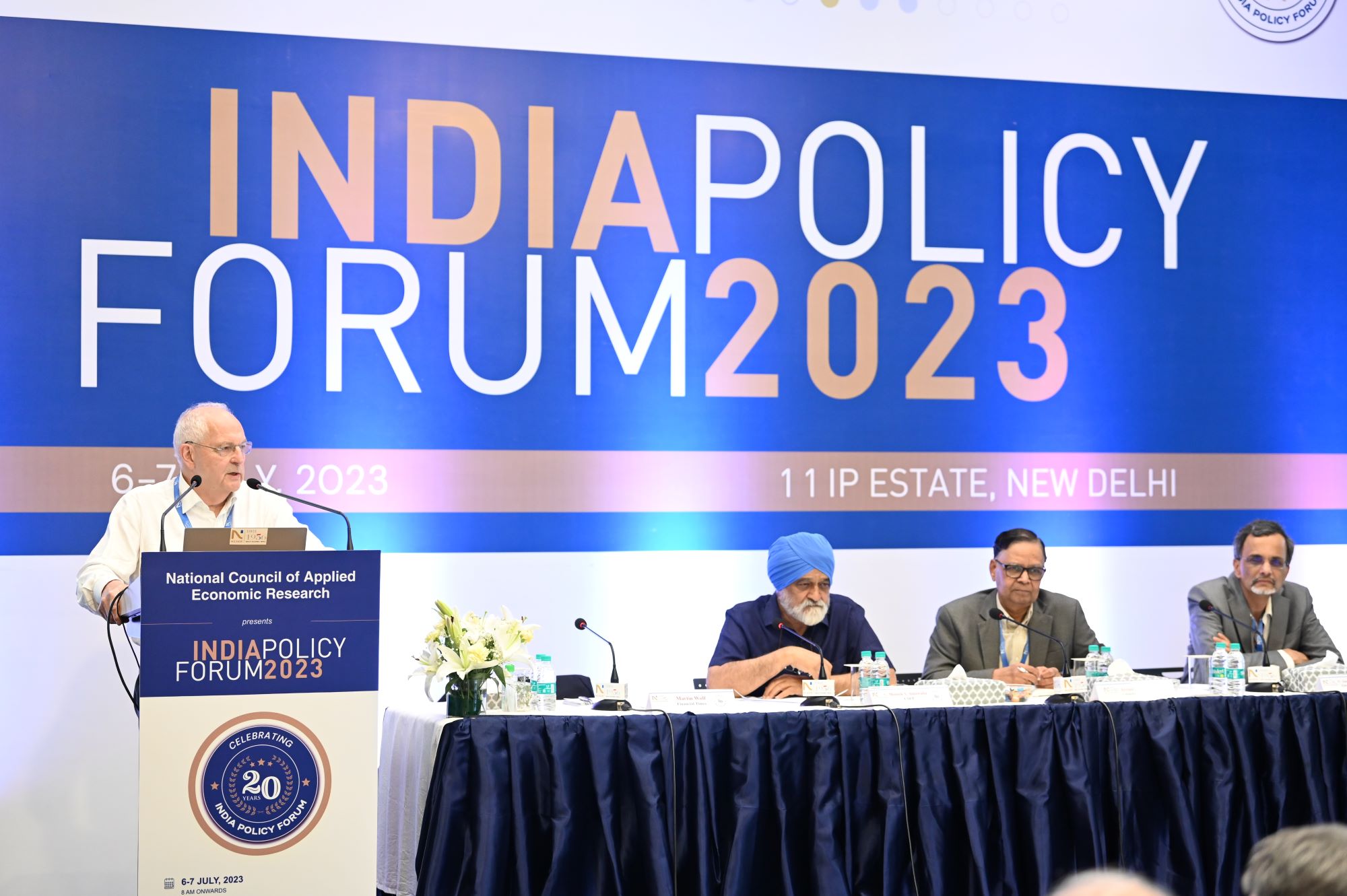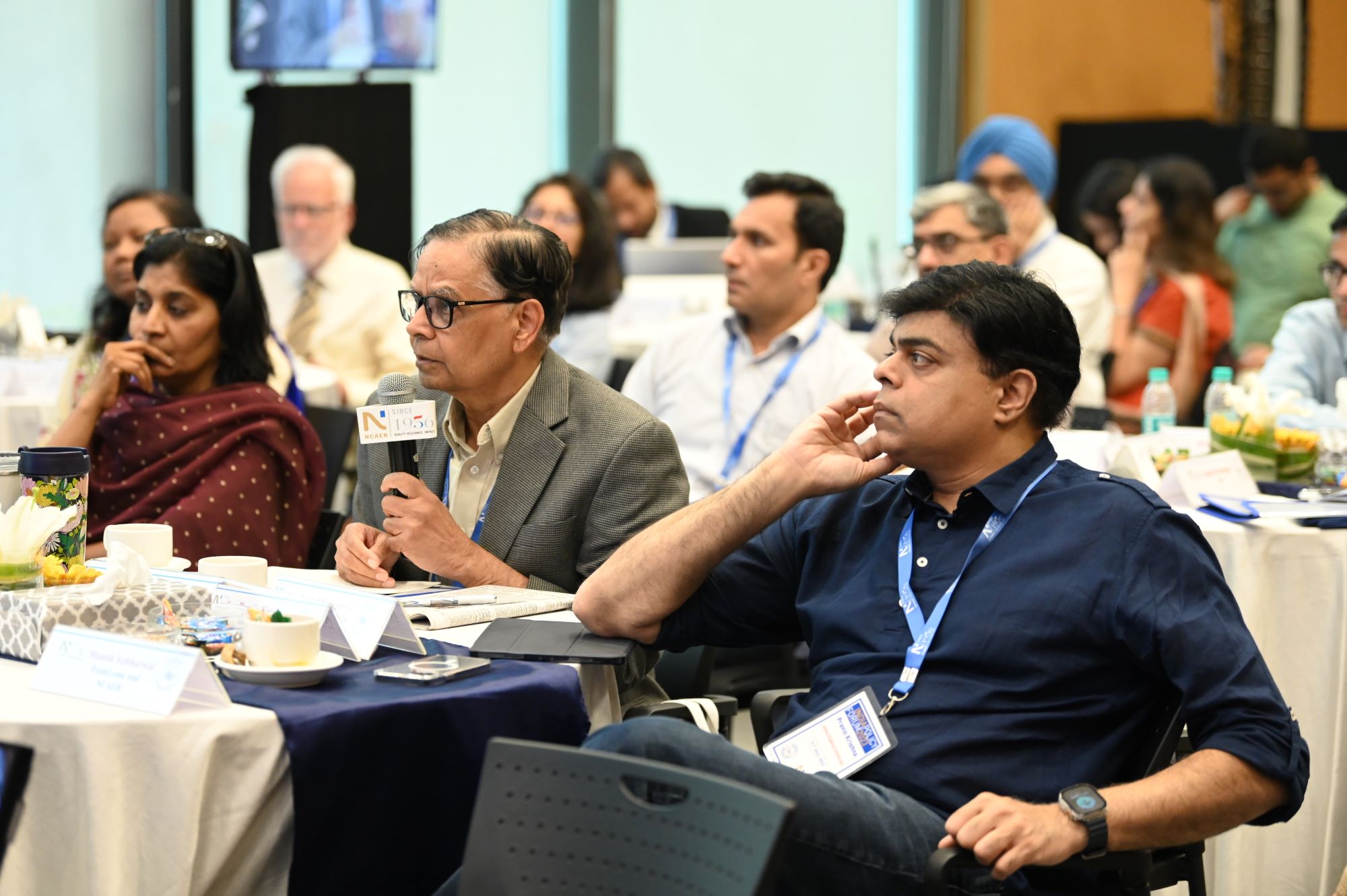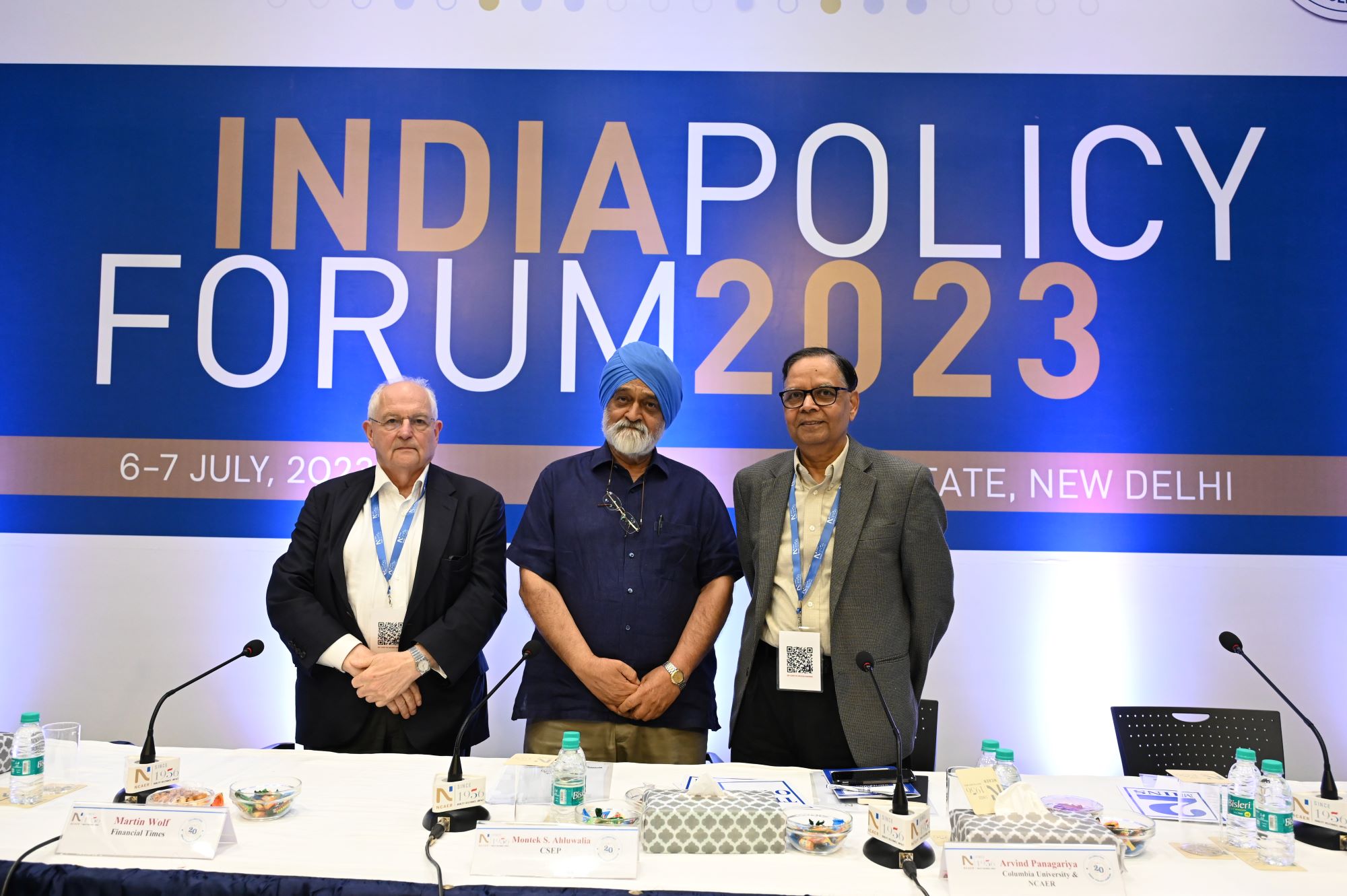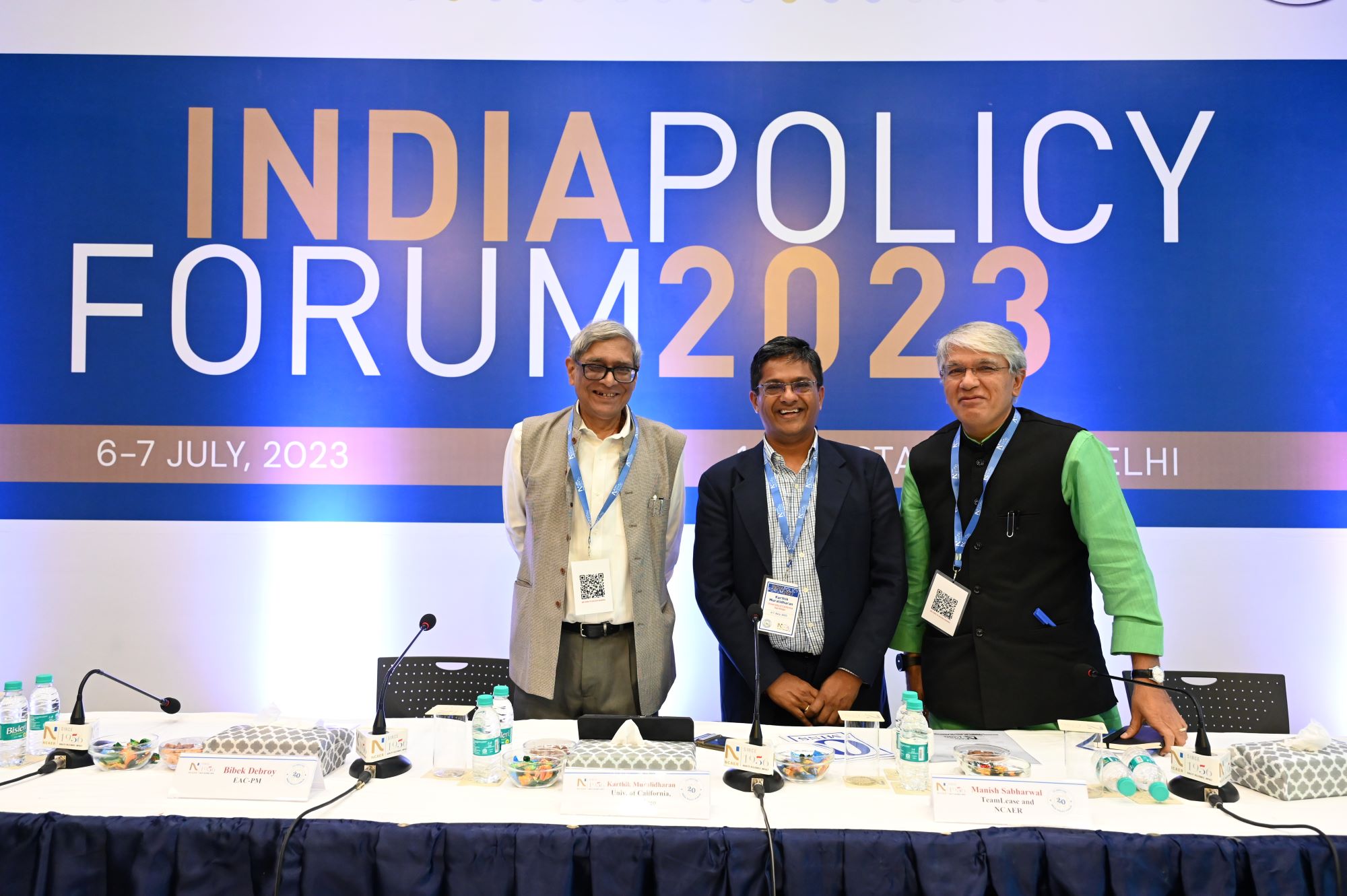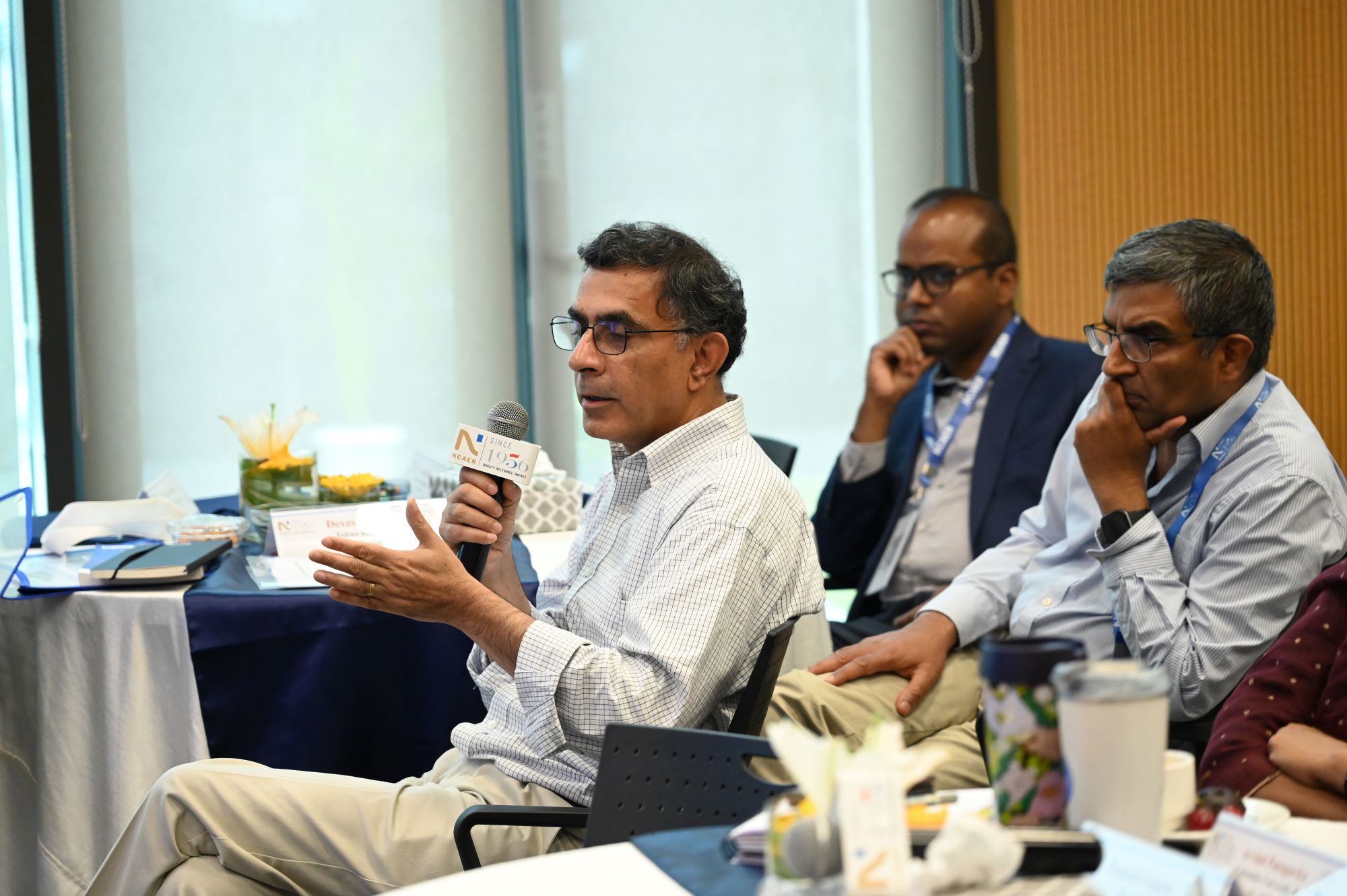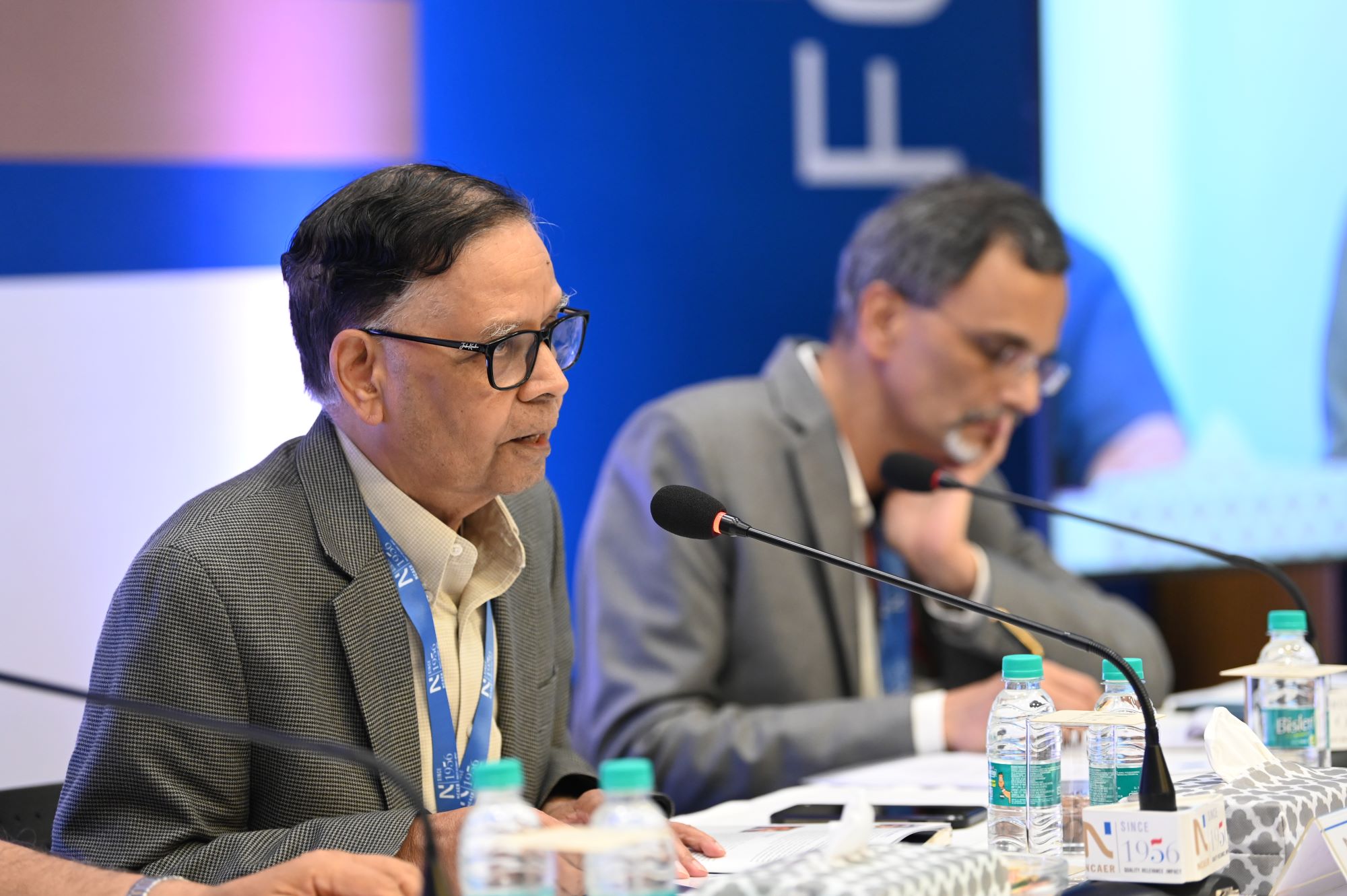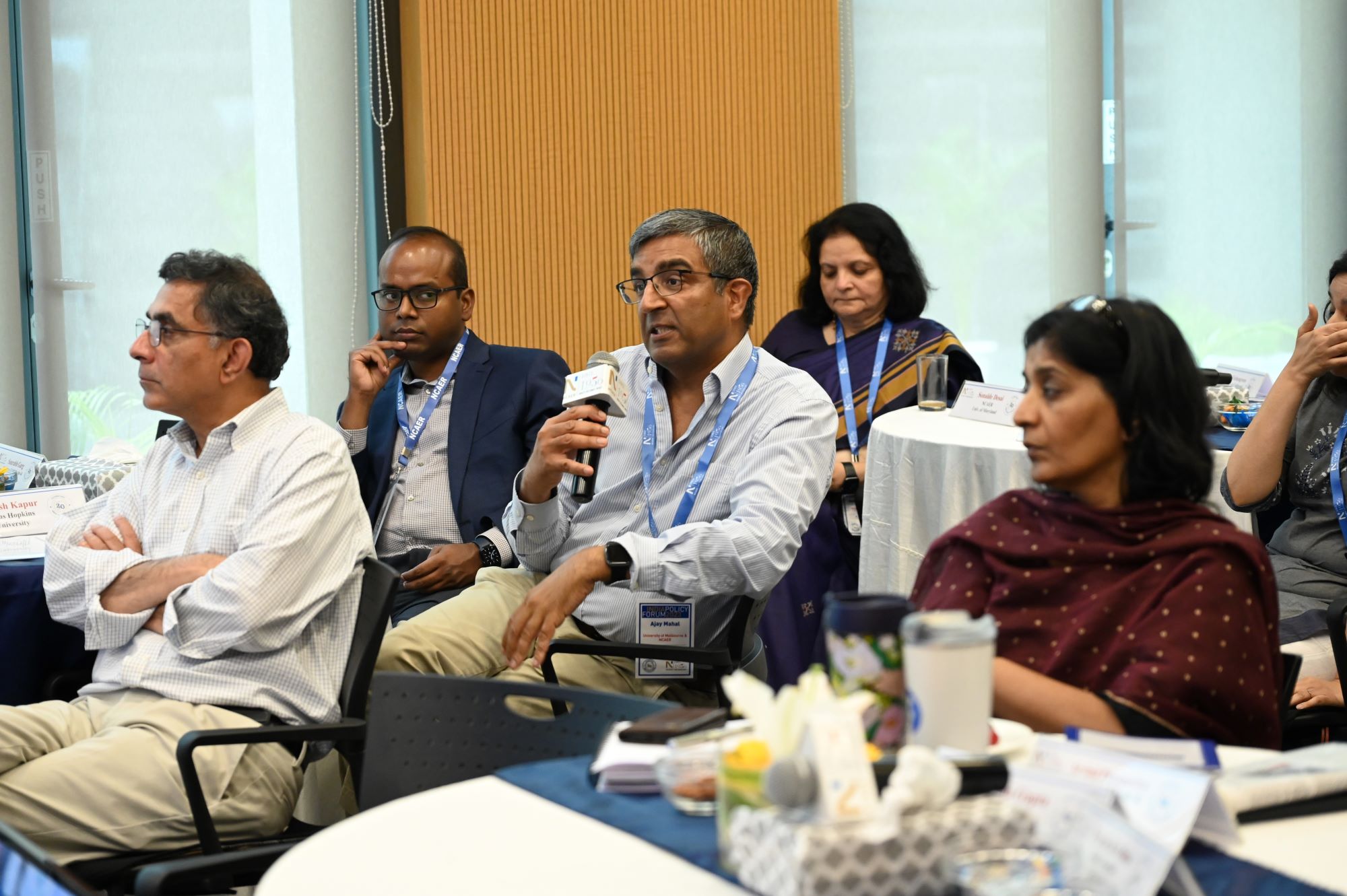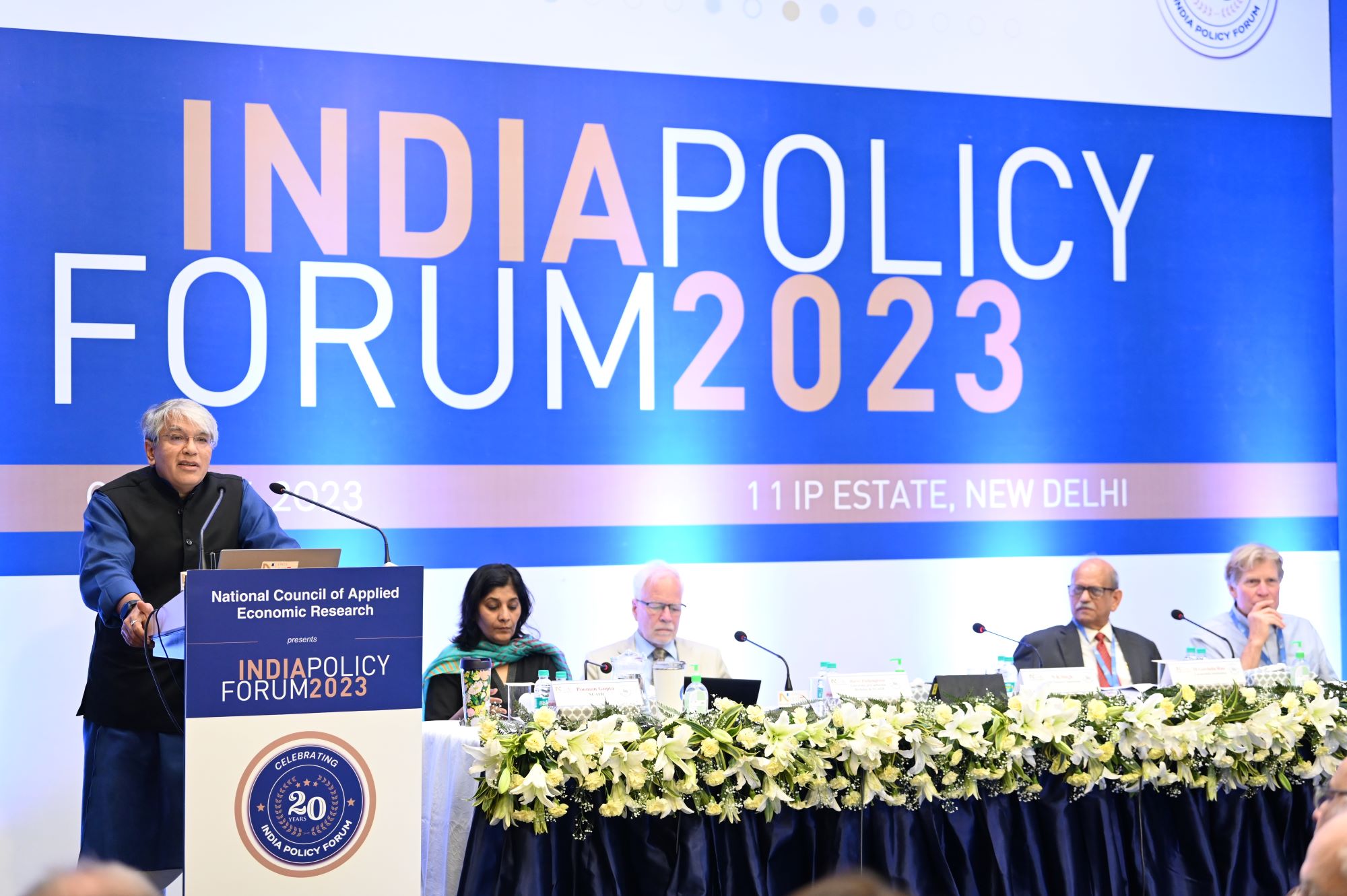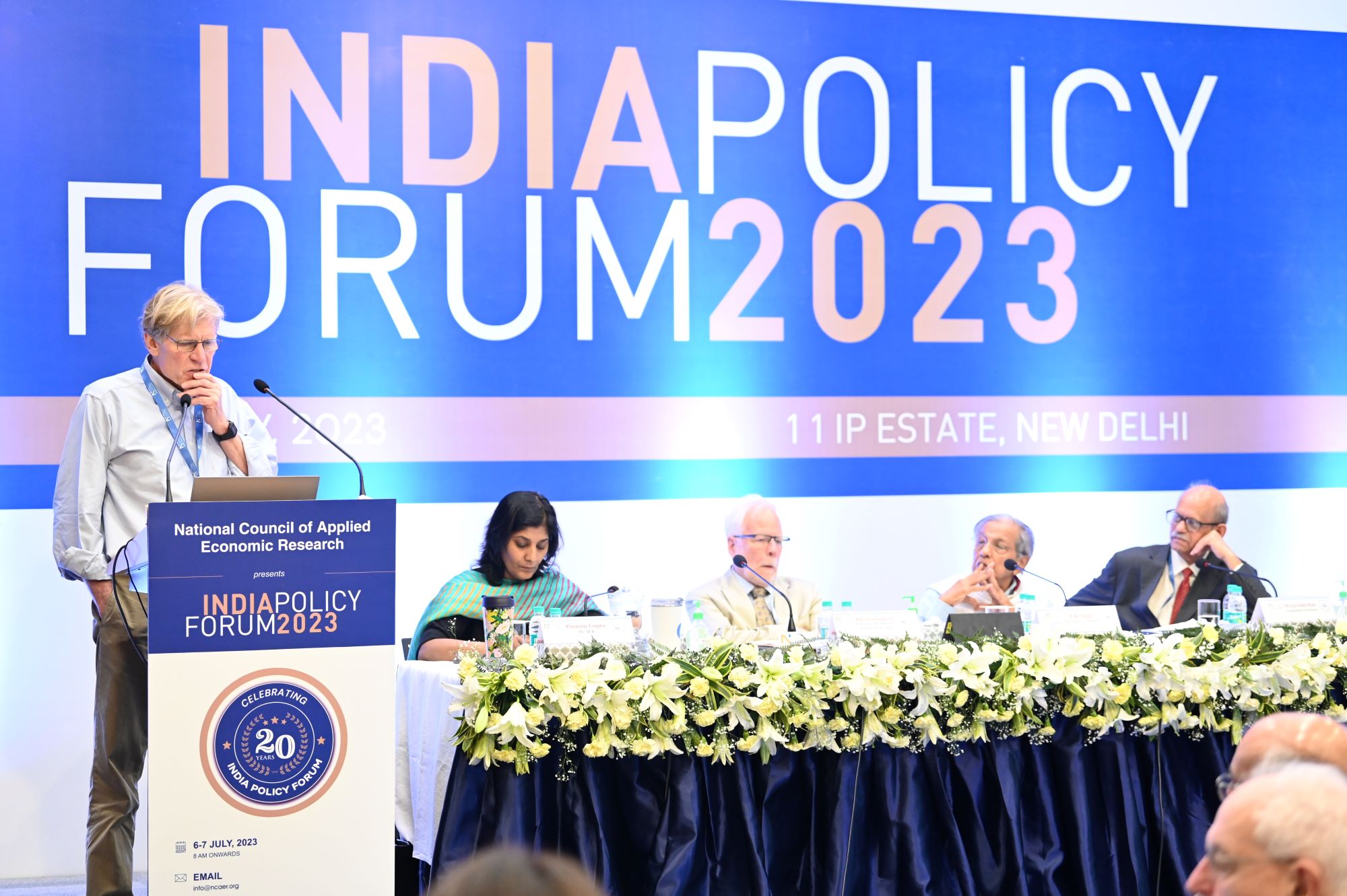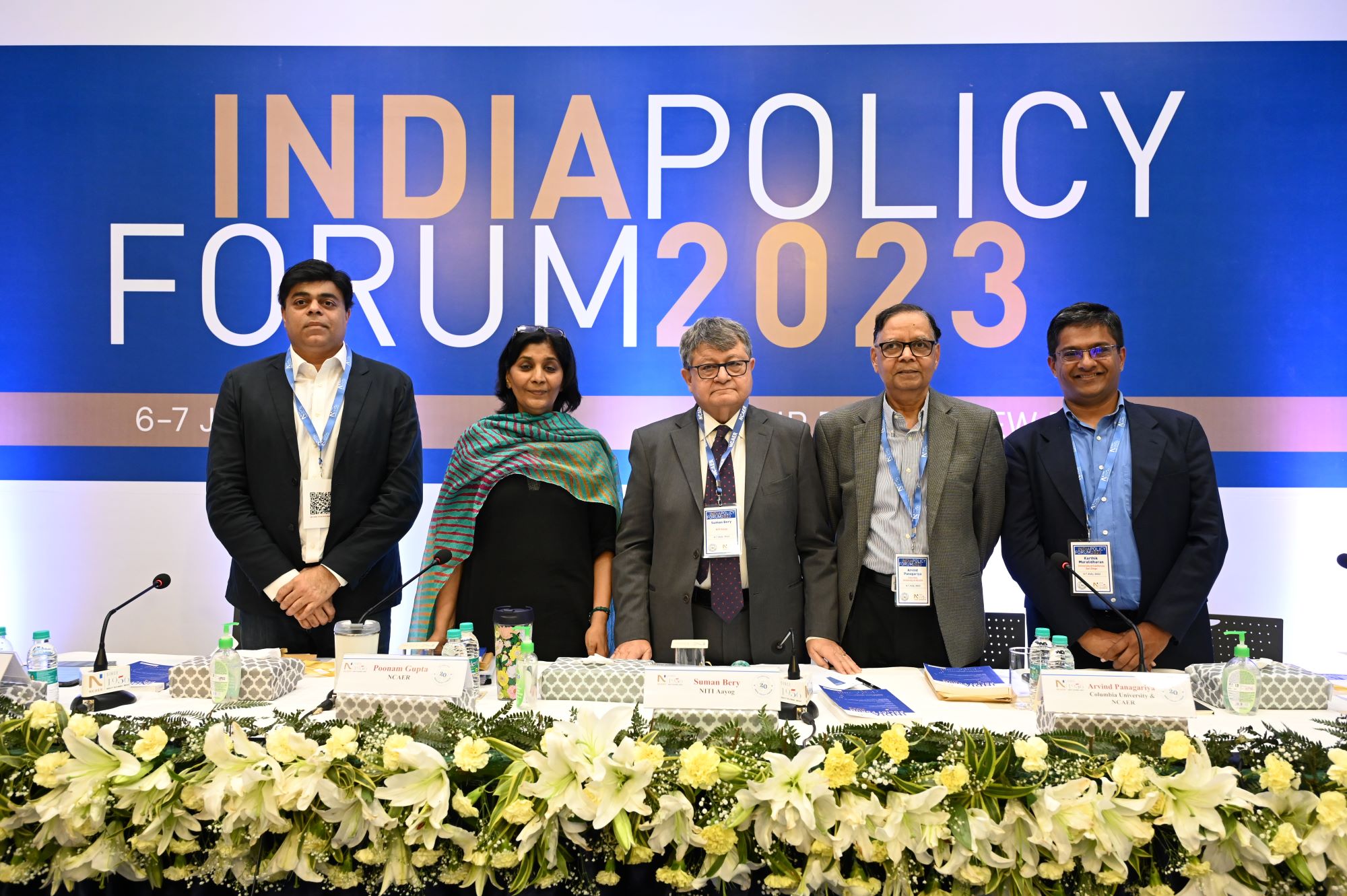NCAER, India’s premier economic think tank, hosted its marquee event, the India Policy Forum (IPF) during July 6-7, 2023. The event was held in person at the NCAER India Centre, New Delhi.
Every summer, the NCAER India Policy Forum brings to New Delhi a unique combination of intense scholarship and policymaker engagement. This annual Forum aims to promote rigorous empirical economic research on India through commissioned papers presented at the Conference, which are published in an international journal. In addition, the IPF features policy lectures and a Roundtable discussion on critical issues.
The 2023 IPF is special because it marks the 20th Anniversary of the Conference. In the past two decades, the Forum has engaged in policy conversations that have contributed to a profound transformation of the Indian economy and society. Since its inception in 2004, the IPF has been a platform carrying forward NCAER’s mandate of ensuring quality, relevance, and impact. Accordingly, the Forum has enabled honest conversations among world-class researchers using evidence-based research. The Forum has since emerged as a leader of ideas and a unique forum for driving policy.
The 20th edition of the IPF was attended by a galaxy of eminent policymakers, economists, academics and researchers, who focused on the key economic challenges facing India, and deliberated on five research papers, covering a range of diverse sectors and subjects, including the public debt and deficit dilemma in India, the financial sustainability of widespread electrification across the country, the need for investing in skills for workers by firms to enhance productivity, the gender implications of preference for sons over daughters, and the status of finance in India.
Contextualising the 20th IPF, the NCAER Director General, Dr Poonam Gupta stated, “The IPF has, over the years, mirrored the momentous developments in India’s economic landscape while also flagging key socio-economic issues of concern for the country. The numerous issues that have found a voice at the IPF, and thereby in the papers featured in the IPF journal, include macroeconomic finance and fiscal policy; GDP growth and development; political economy; human development parameters including health, nutrition, education, and social welfare; poverty and inequality; domestic and international trade; macrofinance and banking; gender equality and empowerment; and environment and climate change, to name just some of them. And some of the key issues from this category have found their way into the 20th IPF as well.”
While discussing the evolution of the IPF over the last 20 years, the former Director General of NCAER and current Vice Chairman of NITI Aayog, Mr Suman Bery, who had launched the IPF Conference in 2003, said, “The IPF has been instrumental in facilitating a constructive interface between policy-makers, on one hand, and academia and the research fraternity, on the other hand, to bring critical issues impacting the Indian economy to the notice of policy-makers.”
The first paper presented at the IPF 2023 was on ‘India’s Debt Dilemma’, in which the authors highlighted the prevalence of high fiscal deficit and public debt prevalent in India, and the need for fiscal consolidation by achieving lower primary deficits through greater tax revenue generation and privatisation. The paper also assesses the sustainability of the public finances, with a focus on the next five years.
The authors of the second paper titled, ‘Is Electrification in India Fiscally Sustainable?’ analysed the fiscal health of State electricity distribution companies (discoms) in India and the impact of this indicator on the supply of electricity in the country. They pointed out that though India has recently achieved near-universal household electrification, State discoms continue to record losses, largely because of Central and State transfers to bail them out. This necessitates the provision of incentives to discoms for ensuring both their fiscal independence as well as reliable supply and service of electricity across the country.
Another paper presented at the IPF 2023 was on ‘Workers, Managers, and Productivity: How Investments in Workers Can Fuel India’s Productivity Growth’, delineated a stylised data set on productivity in the manufacturing sector in India, which points to an average decline in aggregate growth of productivity in India over the last several years. The authors of this paper also deconstructed the various reasons for the systematic under-investment in workers by firms, and the need for a better understanding of firm behaviour with regard to employment of different types of workers across regions.
An important gender-based paper titled, ‘Ten Facts about Son Preference in India’, authored by Seema Jayachandran, Princeton University, generated a lot of debate and discussion on the issues of patrilocal and gender-based outcomes that characterise the sex composition and the ostensible practice of sex selection among Indian families. The author pointed out the need for implementing State policies such as the introduction of public pensions for elderly parents as an alternative to old-age support from sons, increased delivery of health services for girl children through schools, and interventions that can trigger a transformation in attitudes and norms to counter the patriarchal preference for sons over daughters in Indian families, and the differential investments made on male children vis-à-vis their female counterparts.
The last paper presented at the IPF 2023, titled, ‘The Past and Future of Finance’, was authored by Ruchir Agarwal, Yale School of Management and Harvard Kennedy School. The paper outlined the financial crisis India faced during the period 2018-20, followed by an analysis of the fiscal slowdown in the country commencing in 2018, which was signified by a serious decline in its GDP and recession in various sectors of the economy. The paper also delineated the subsequent policy response in order to strengthen India’s financial system to protect it from future fiscal crises, and the potential future challenges and opportunities and a roadmap for key reforms to foster economic growth in India.
In addition to the five papers, the India Policy Forum Conference of 2023 also featured three lectures, including the IPF Annual Lecture by Professor Hélène Rey, of London Business School, on “Monetary and Macroprudential Policies with Global Financial Cycles”; the Policy Maker’s Lecture, titled, ‘Discretion is the Bitter Part of Advice’, delivered by the Chair of the Economic Advisory Council to the Prime Minister, Dr Bibek Debroy, who focused on how policy-making is often hampered by the ambivalence or recalcitrance of policy advisors to deliver actionable recommendations for executing State policies; and the T.N. Srinivasan Lecture titled, ‘Poverty and Inequality in India: An Exploration of Undercurrents at the Village Level’, by Peter Lanjouw, VU University, Amsterdam, Netherlands. Lanjouw’s lecture focused on poverty at the micro level, that is, the level of the village, and how measuring poverty at the local level can drive welfare policies implemented by both Central and State governments.
The IPF 2023 concluded with the IPF Policy Roundtable, titled, ‘The World in a Polycrisis’, which featured a keynote speech by noted financial journalist, Martin Wolf of Financial Times, and moderated by Arvind Panagariya, Columbia University and NCAER. The Discussants for this session included V. Anantha Nageswaran, Chief Economic Adviser, Government of India, and Montek Singh Ahluwalia, Centre for Social and Economic Progress (CSEP). In his presentation, Mr Wolf highlighted key global developments that have fomented disruptions and crises across the world, including demographic shifts, de-globalisation or ‘slowbalisation’, global warming, technological changes; shocks such as the pandemic, the Russia-Ukraine War, and rise in energy prices; and the consequent fragilities in international systems fuelled by these shifts and shocks, such as mounting global inflation and public debts, advent of populist and divisive politics, and the erosion of international institutions. The Discussants’ comments and the subsequent general discussion focused on possible solutions to these shifts and shocks, the roadmap for the future, and the potential leadership role of India in forging ties with other nations to deal with the global polycrisis.











